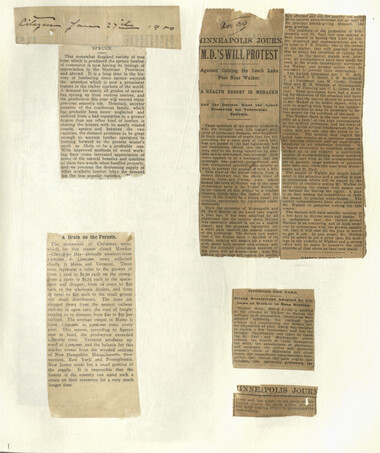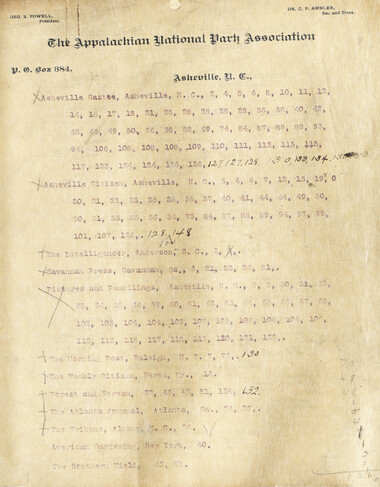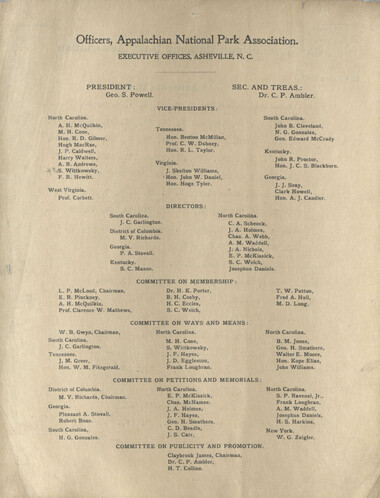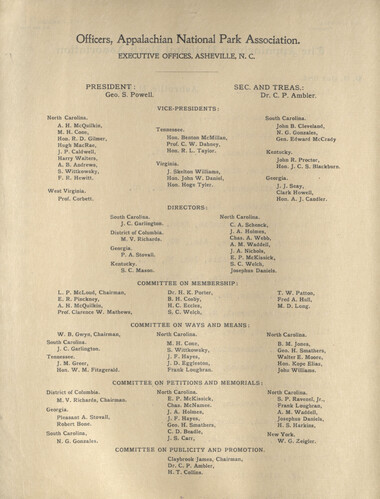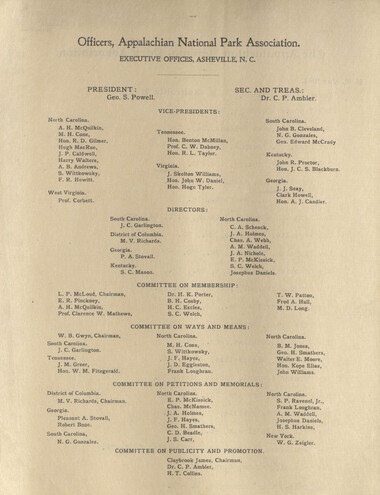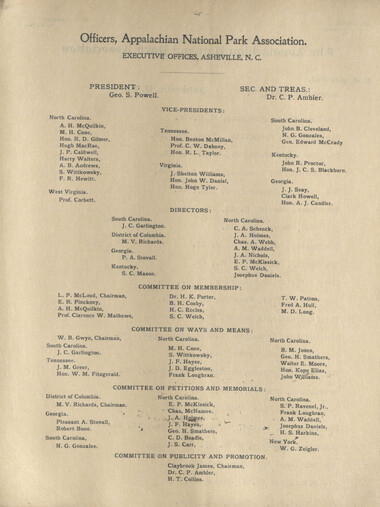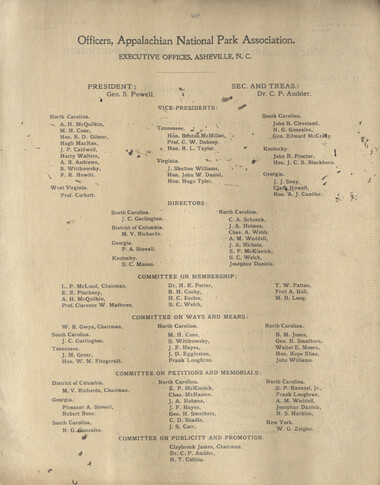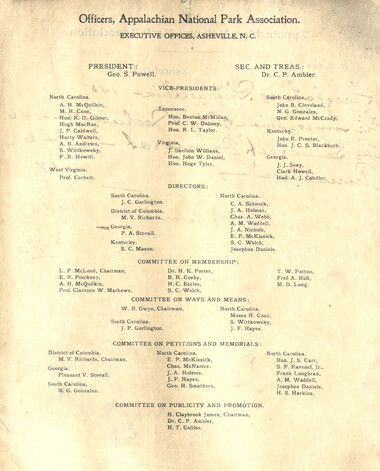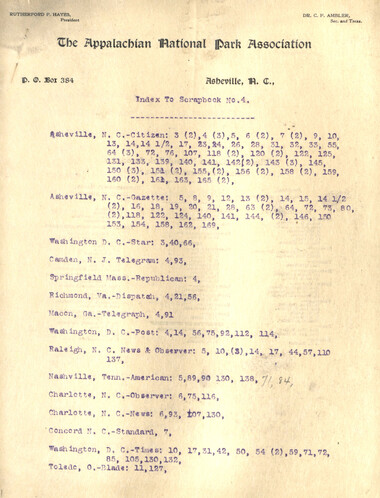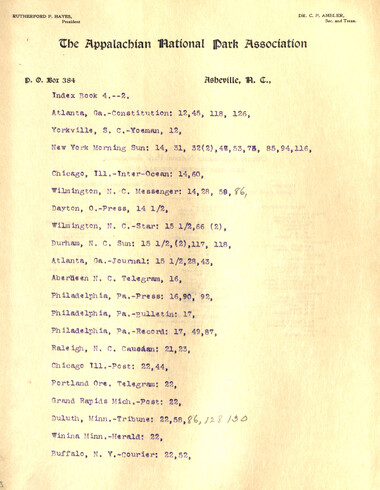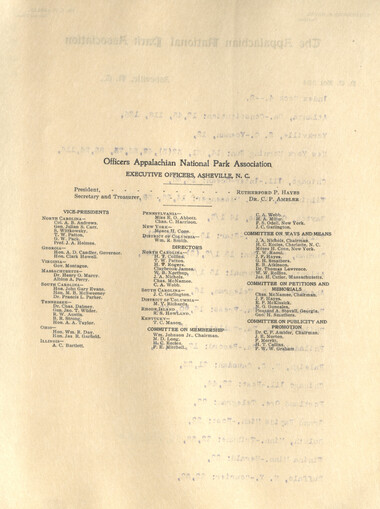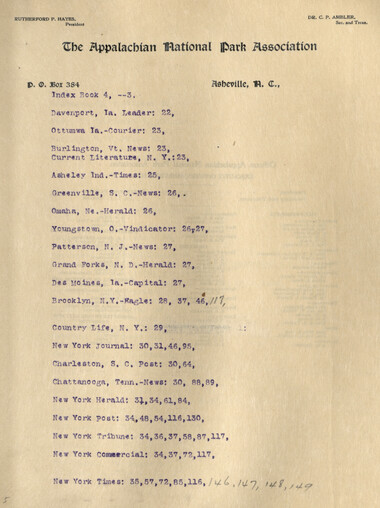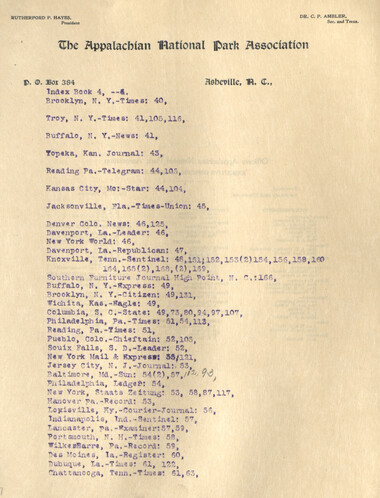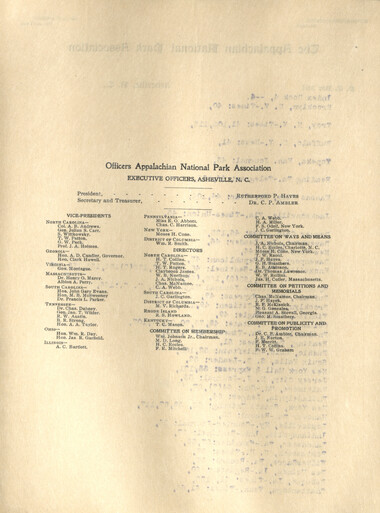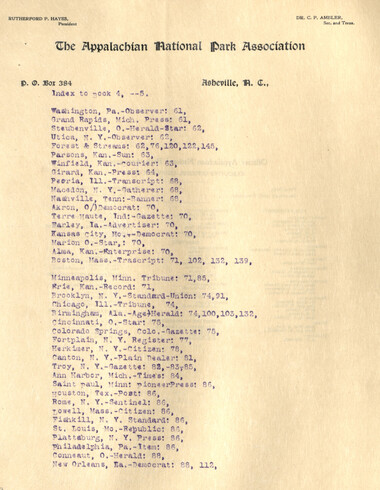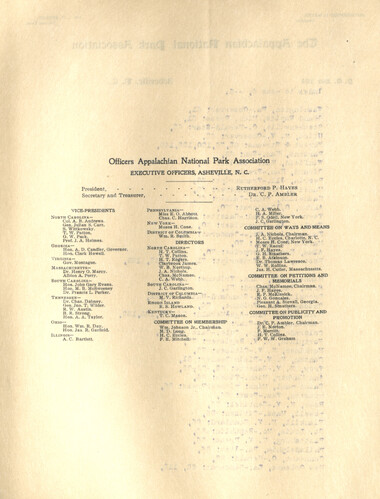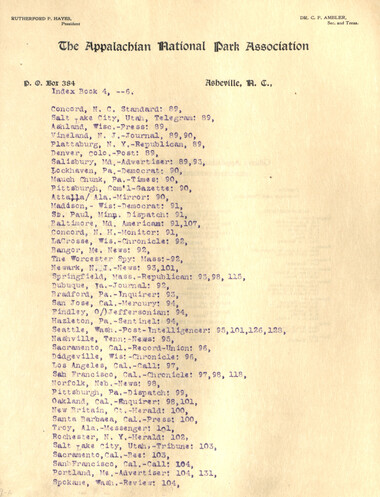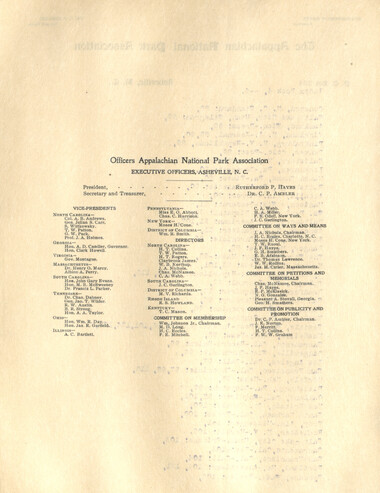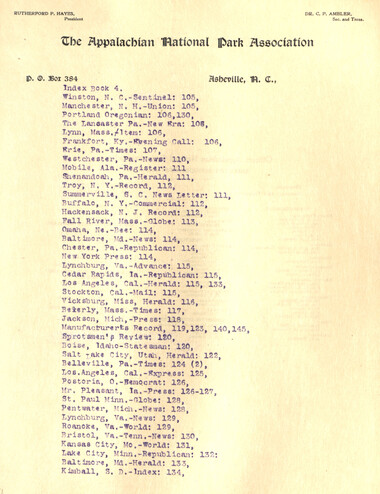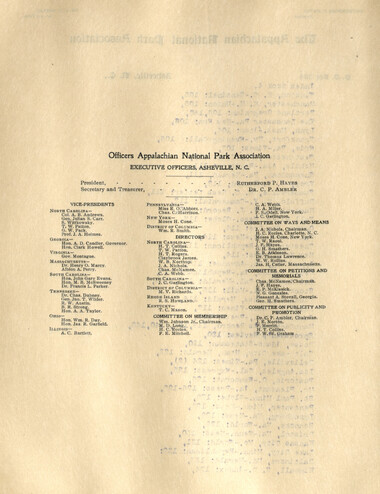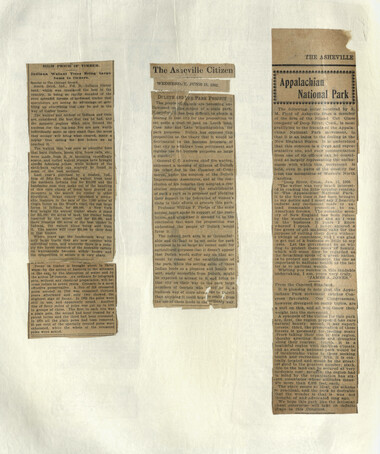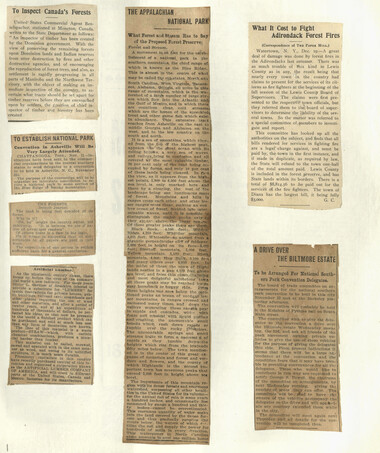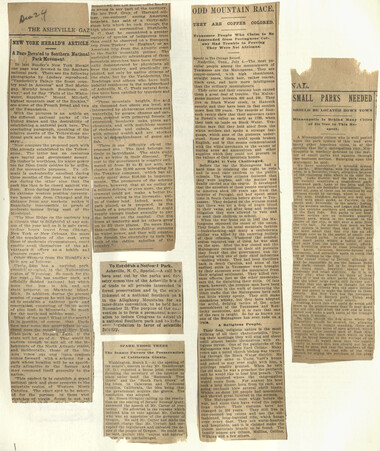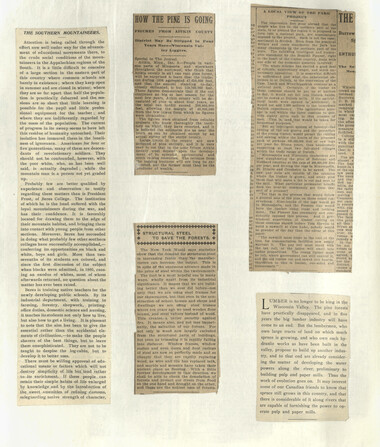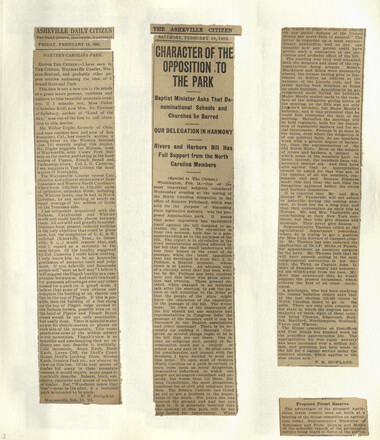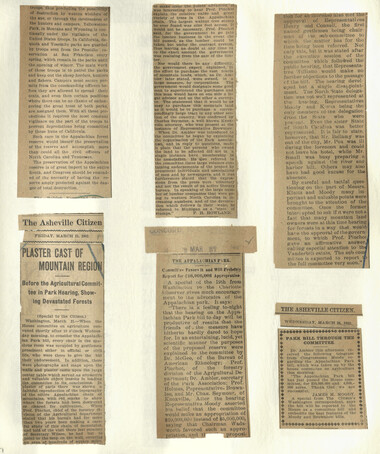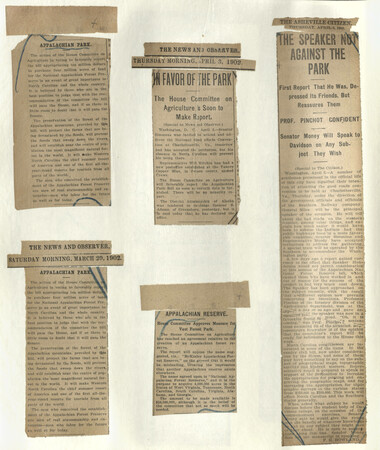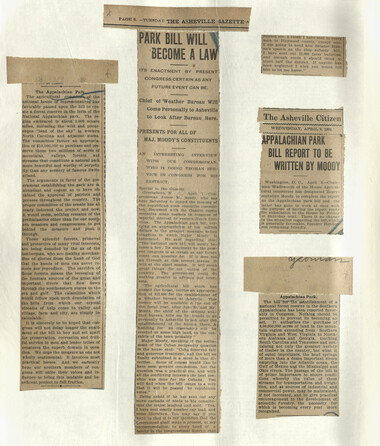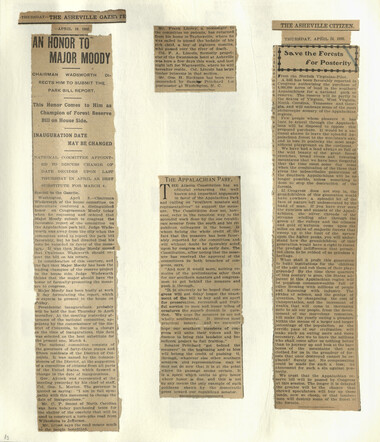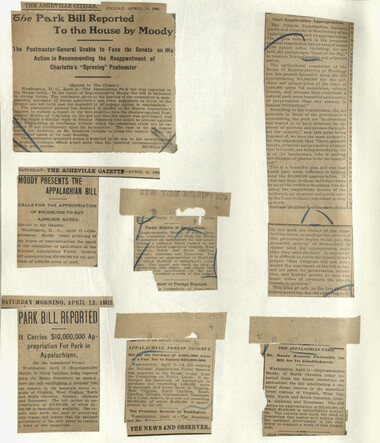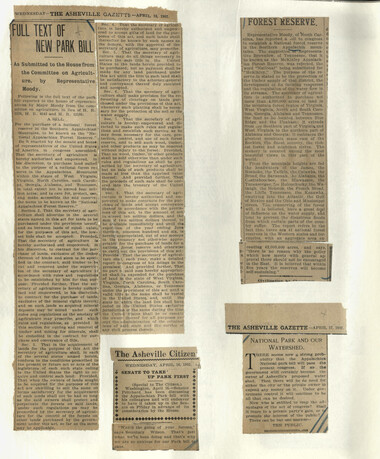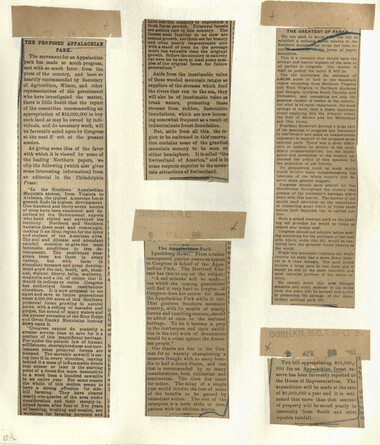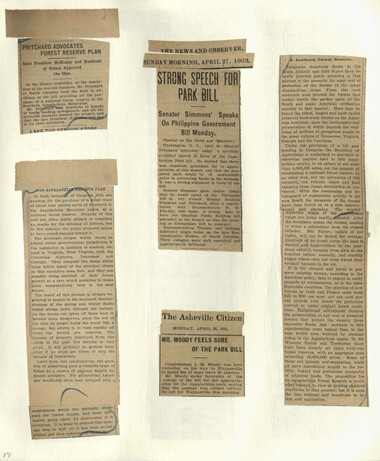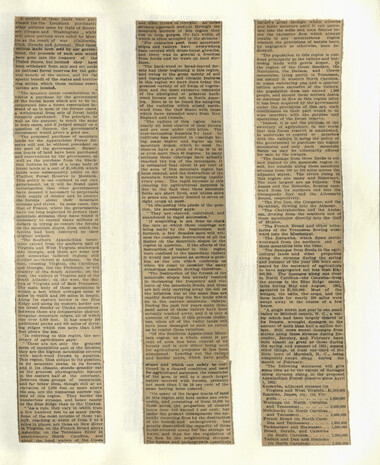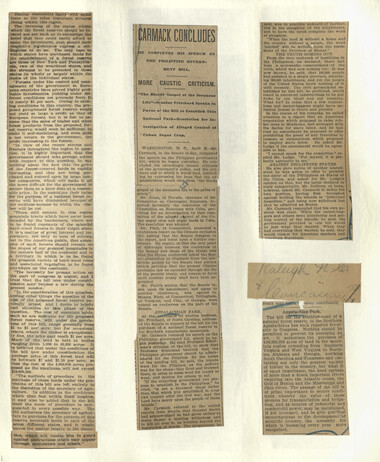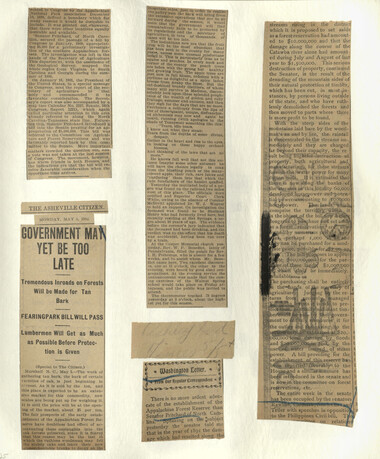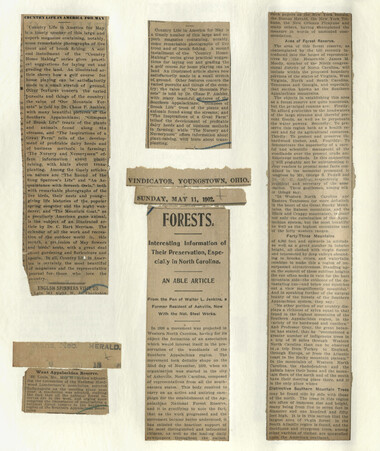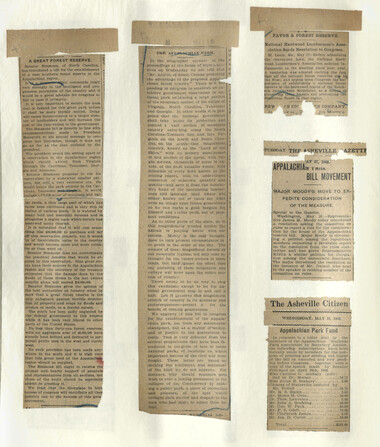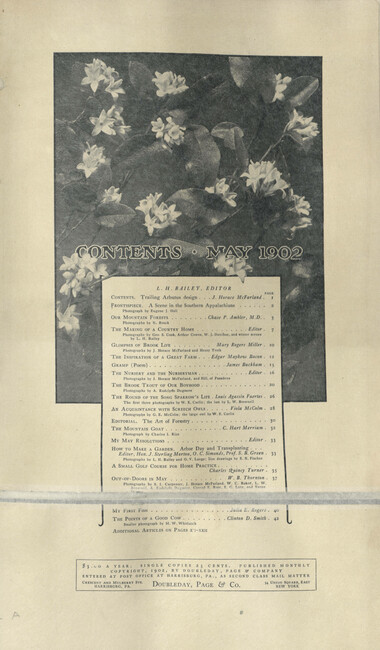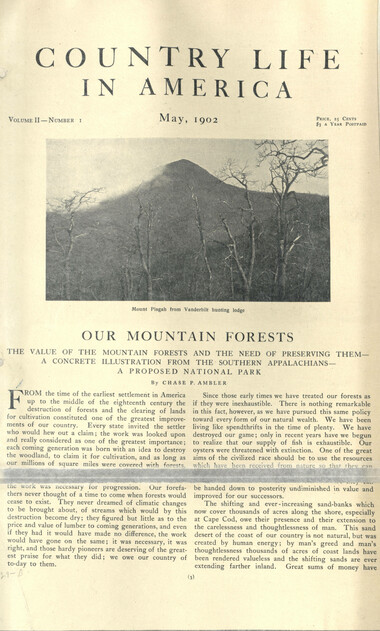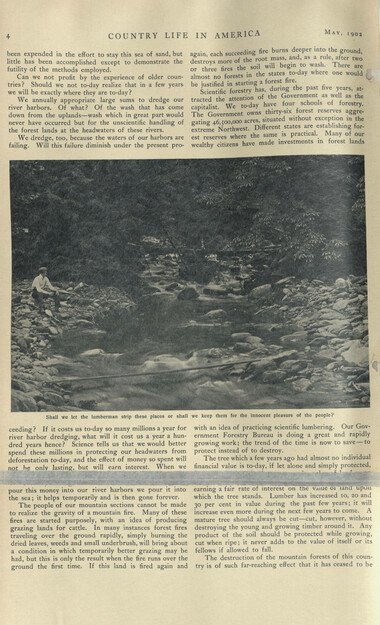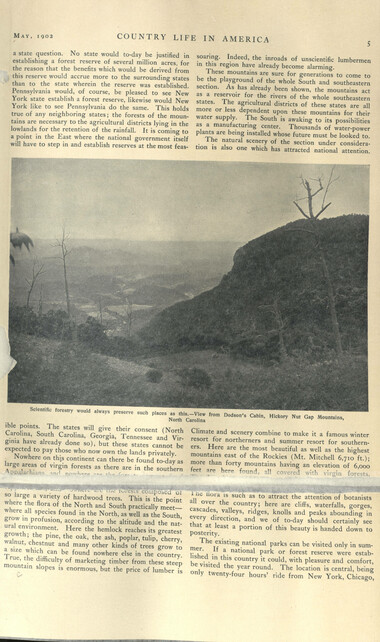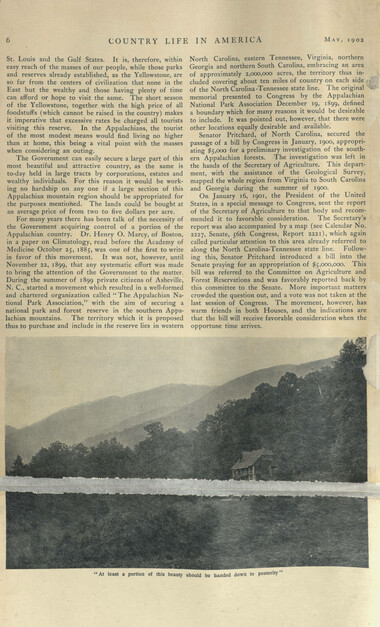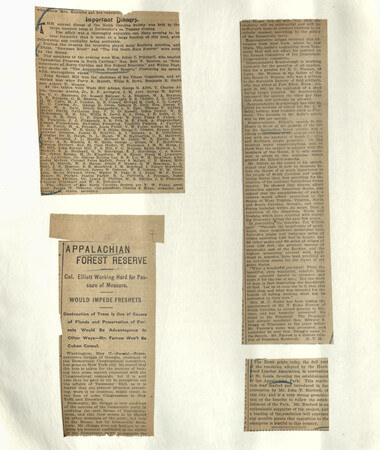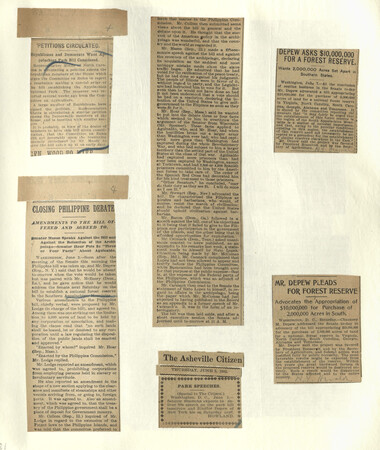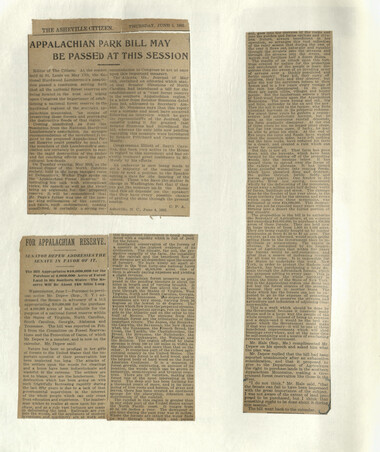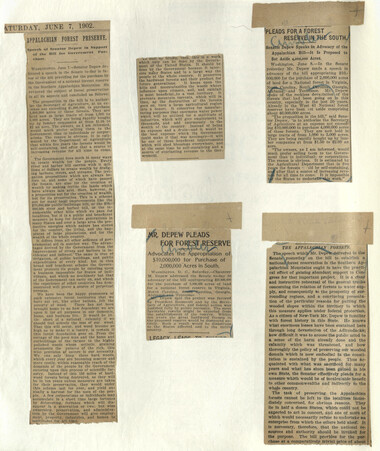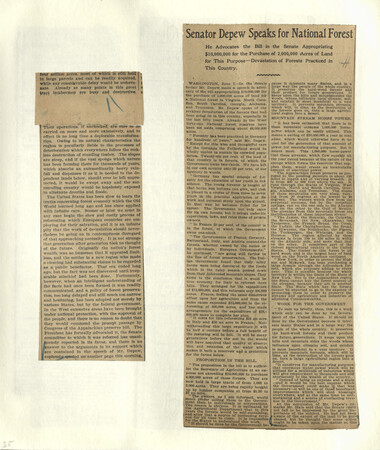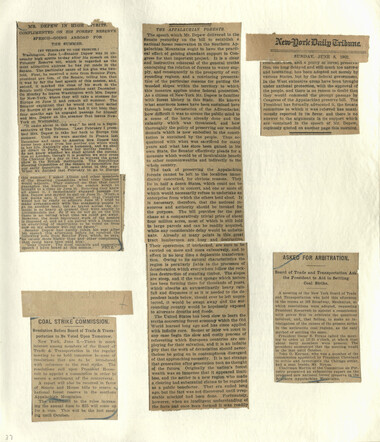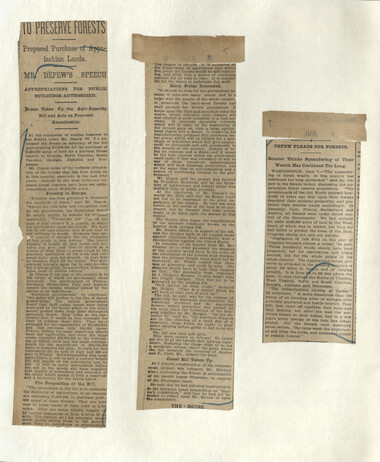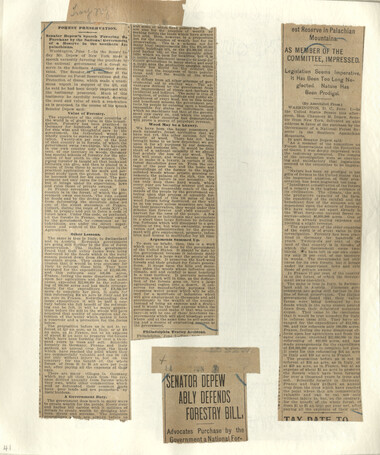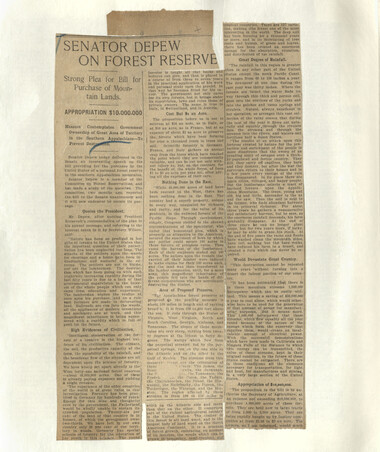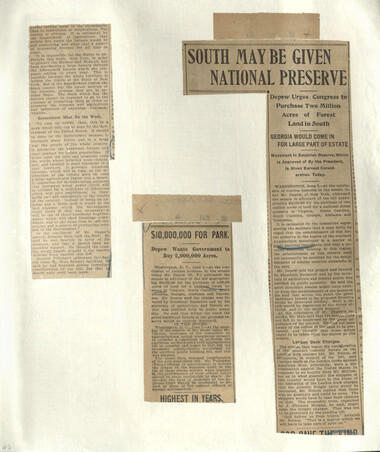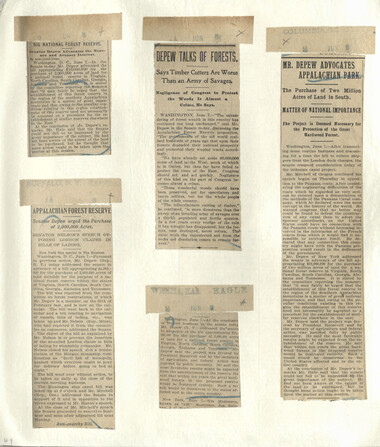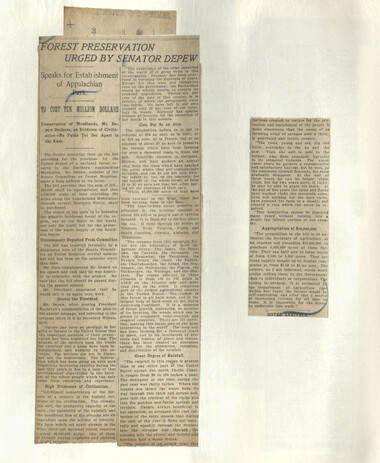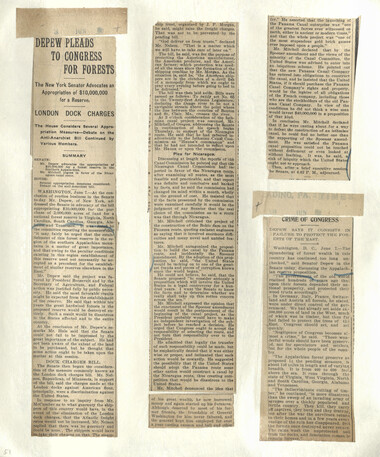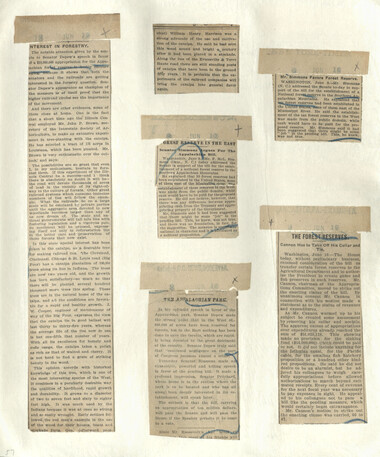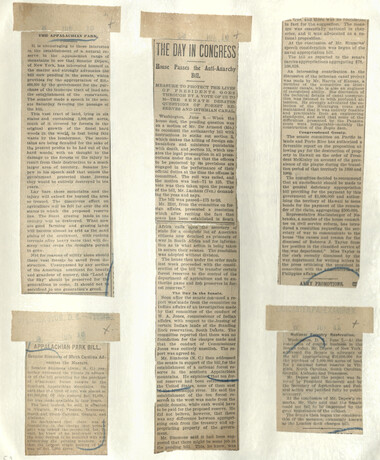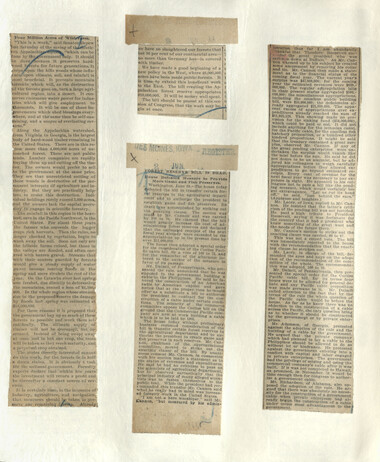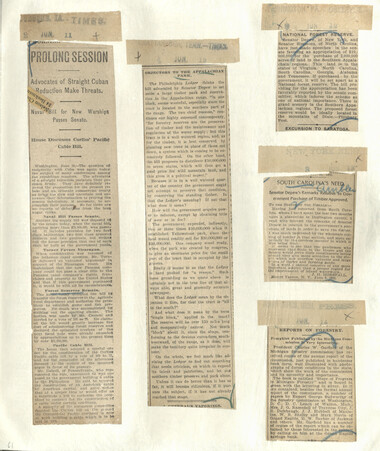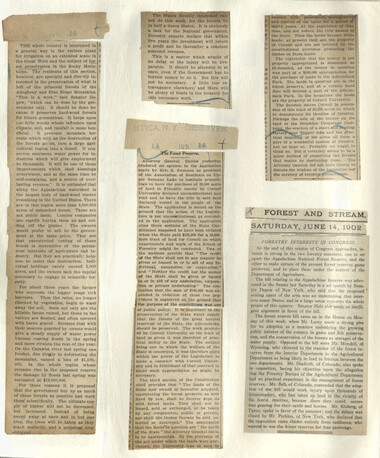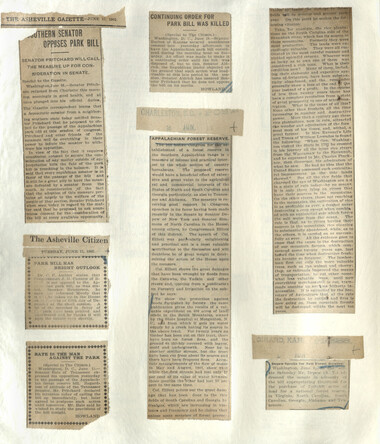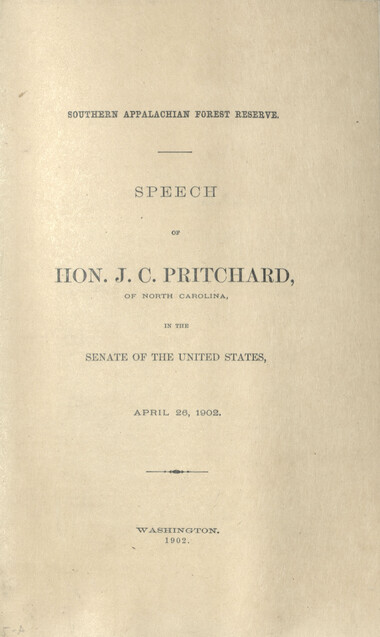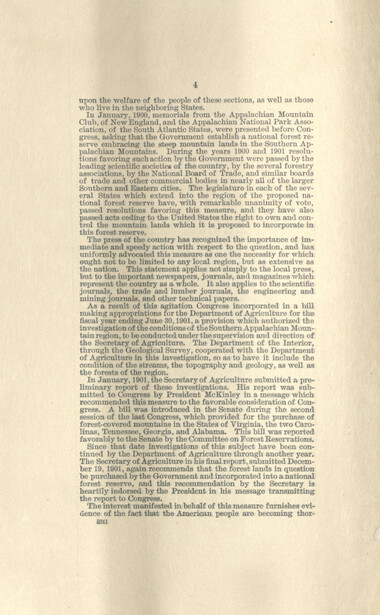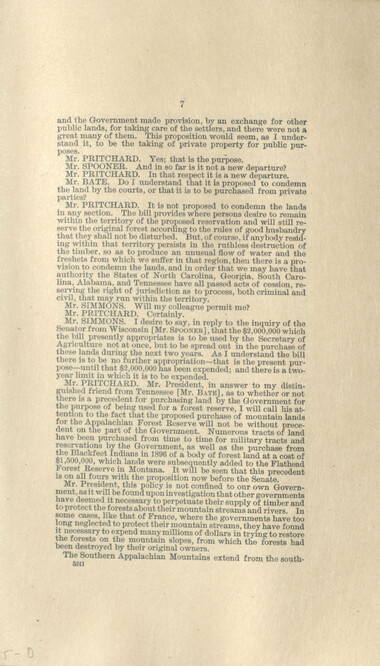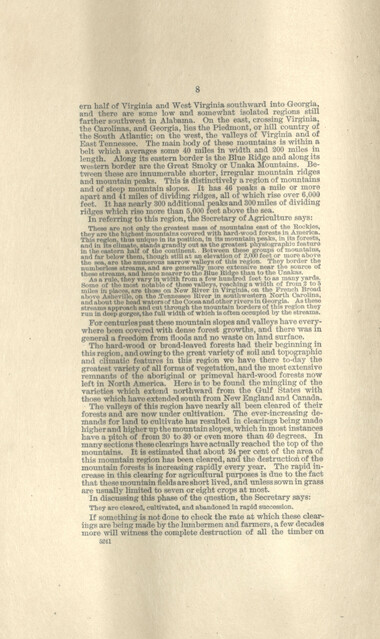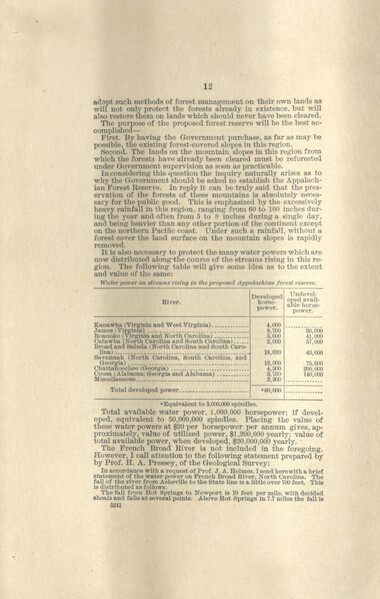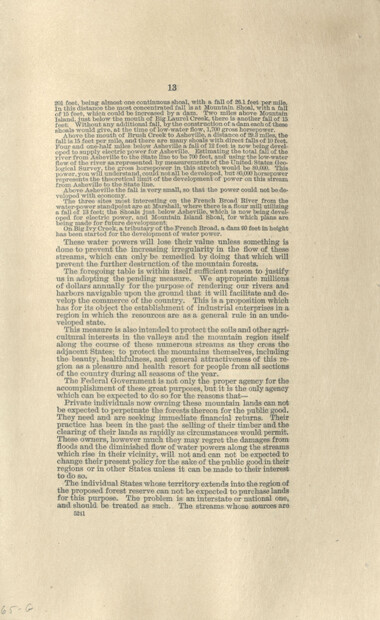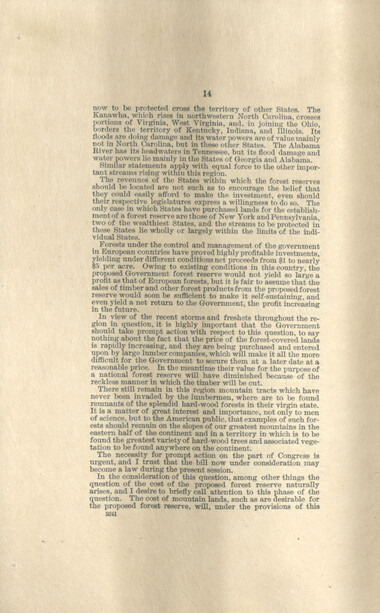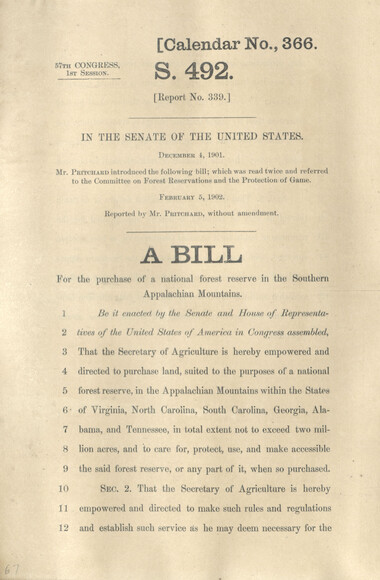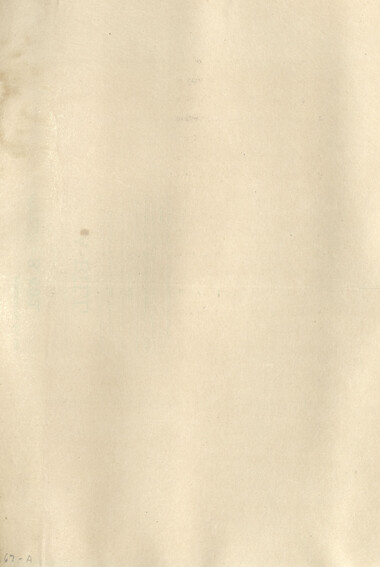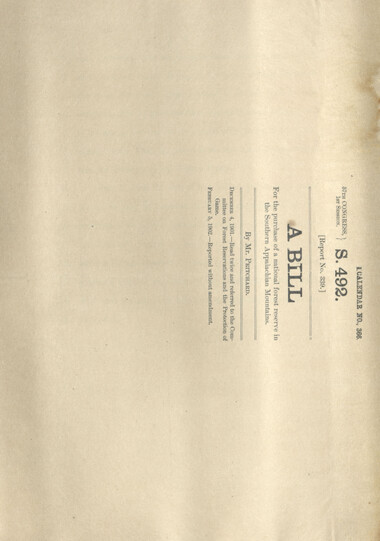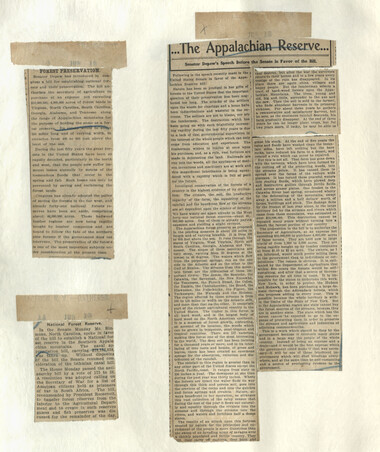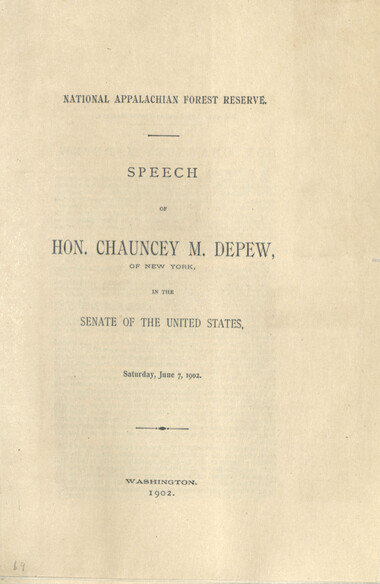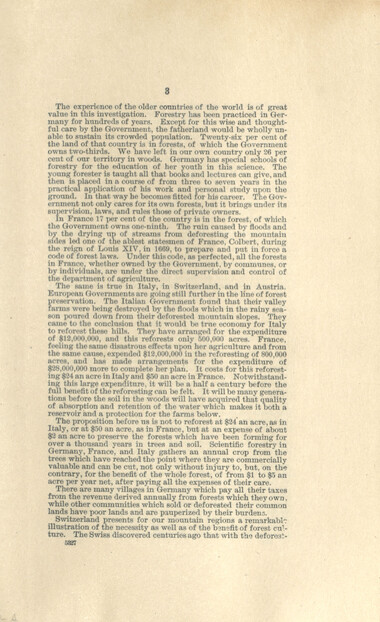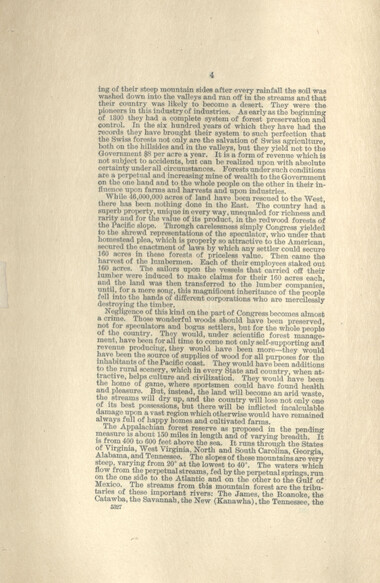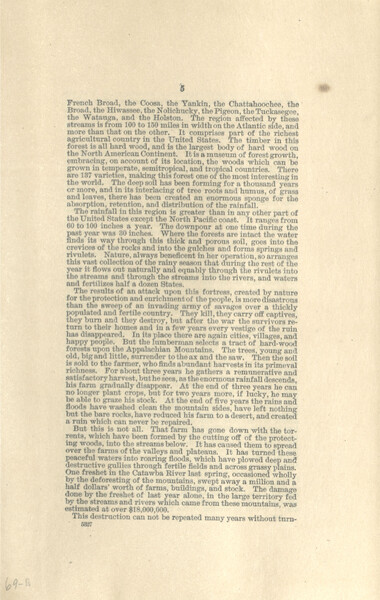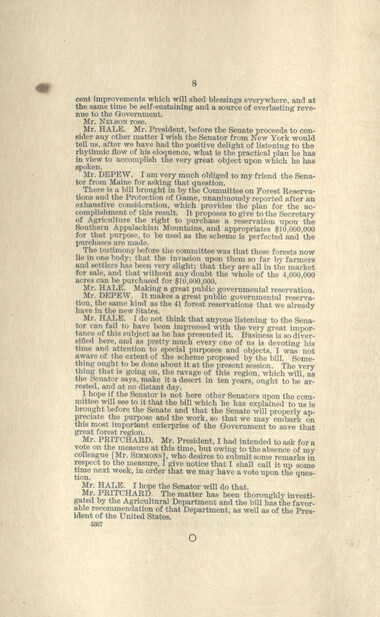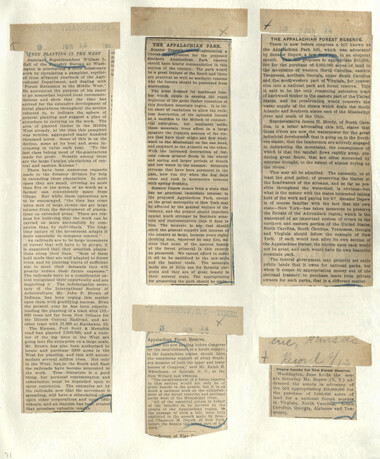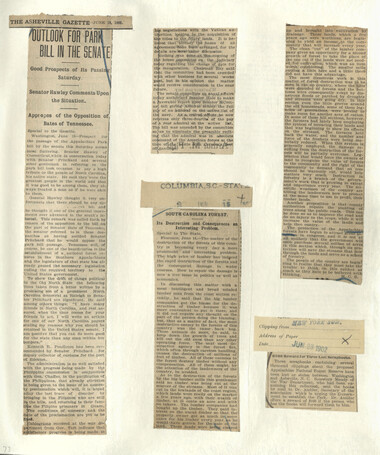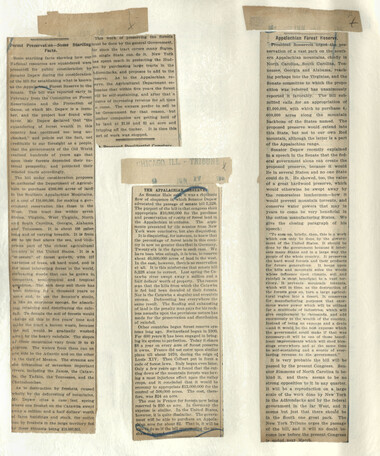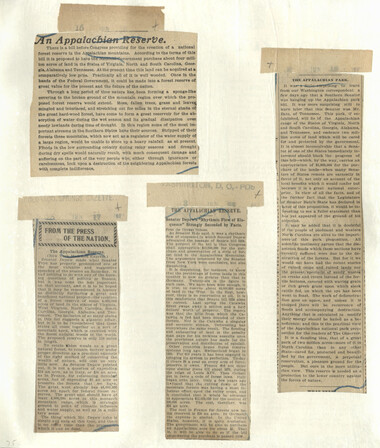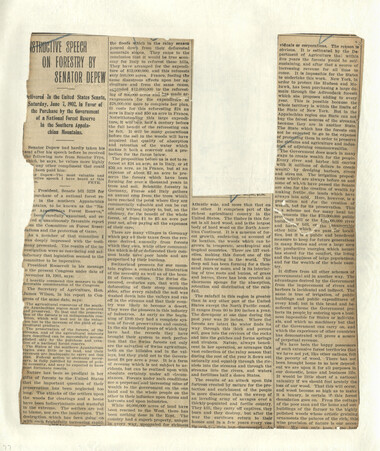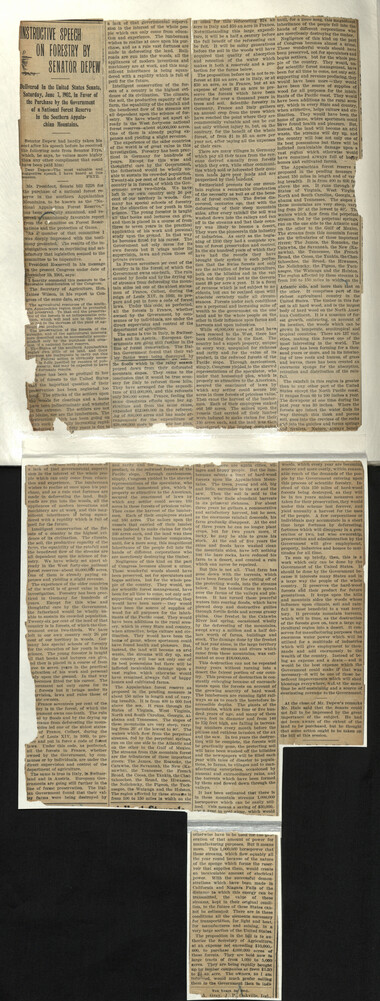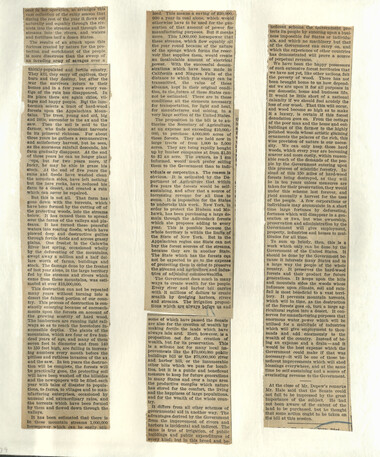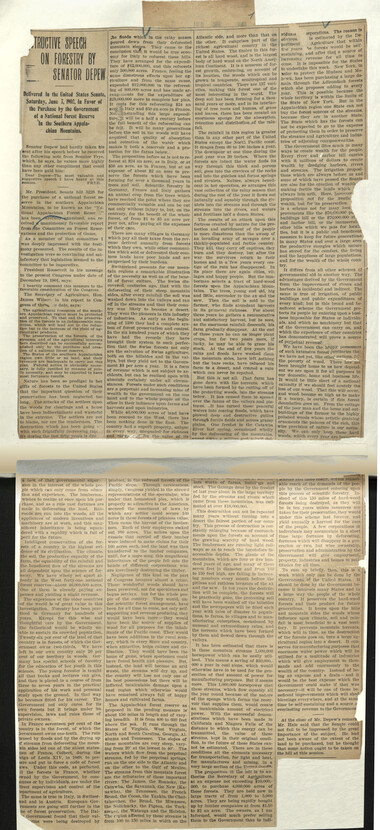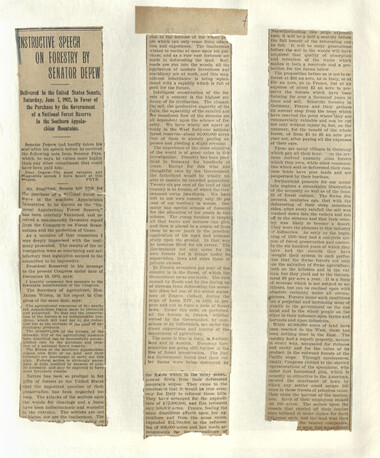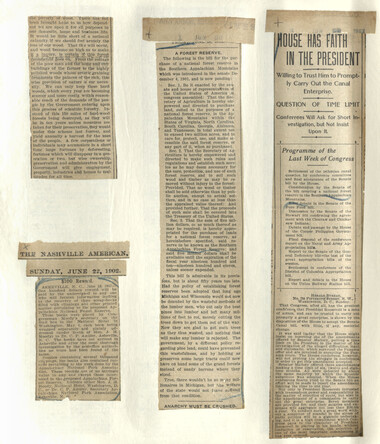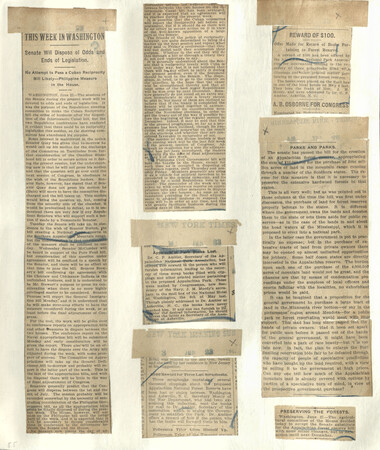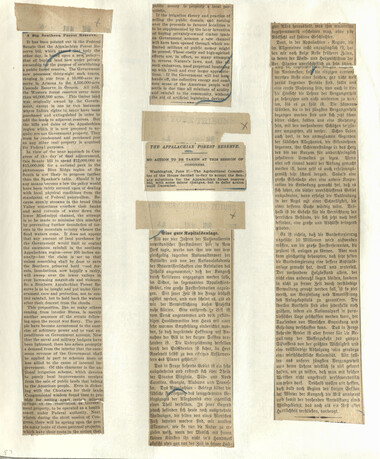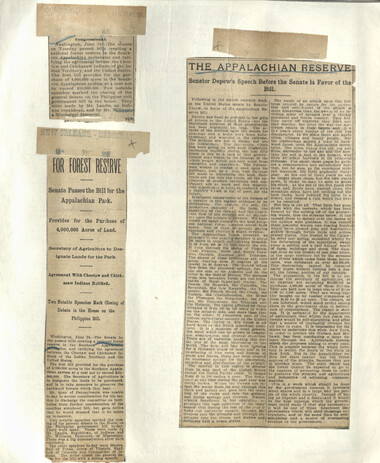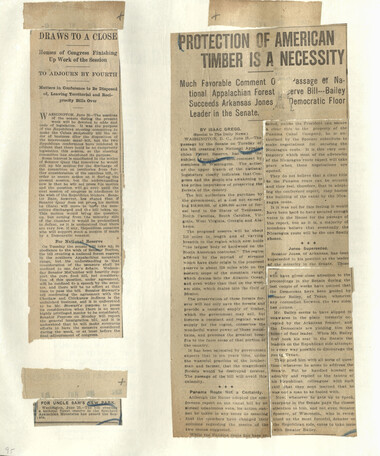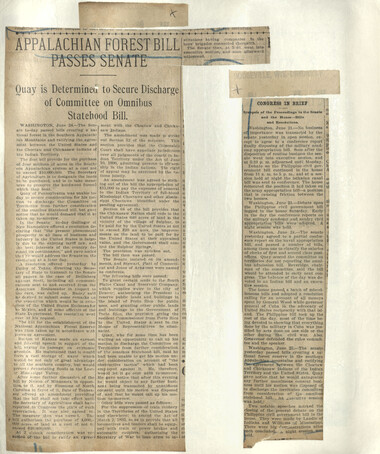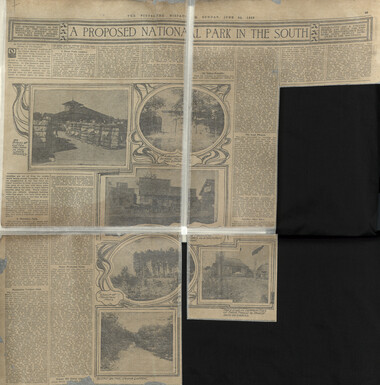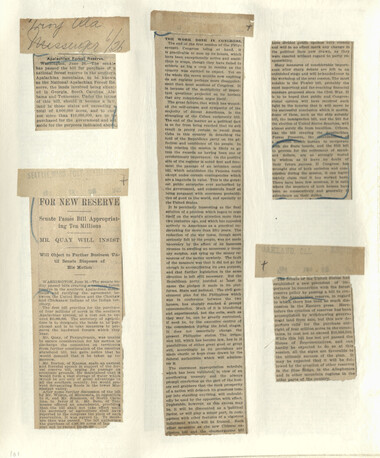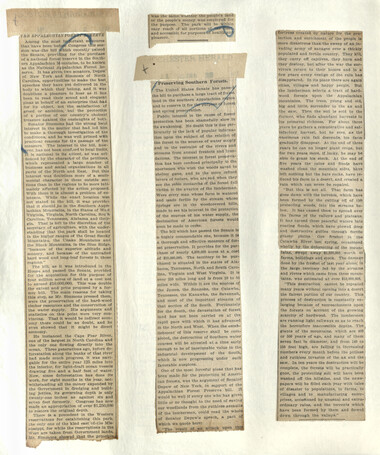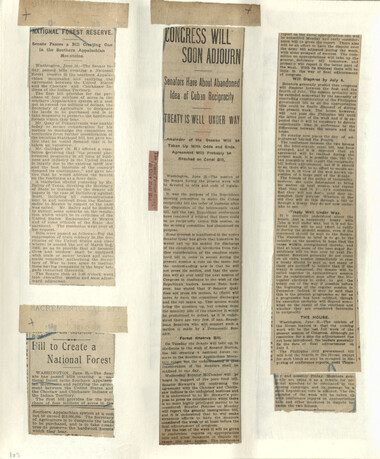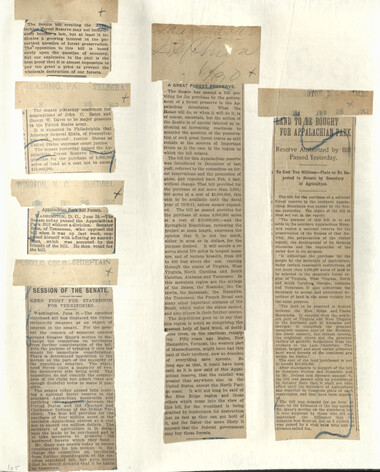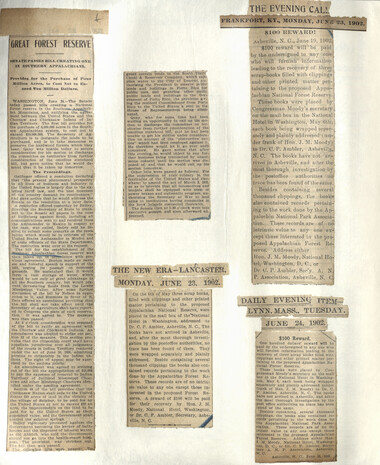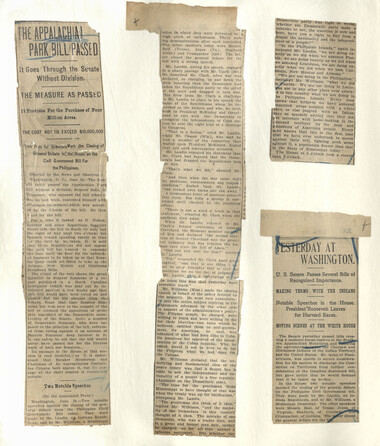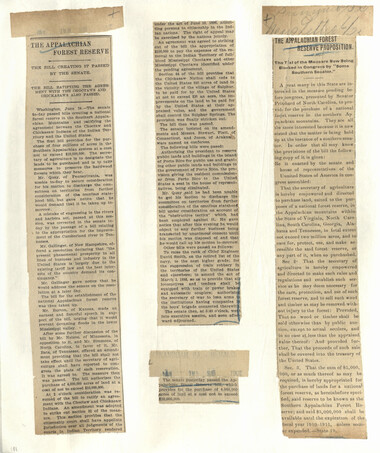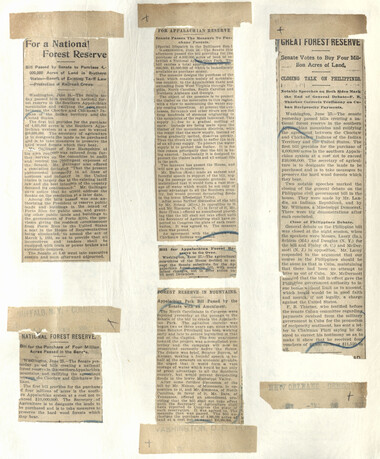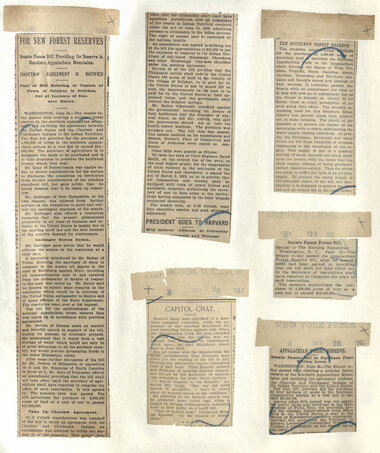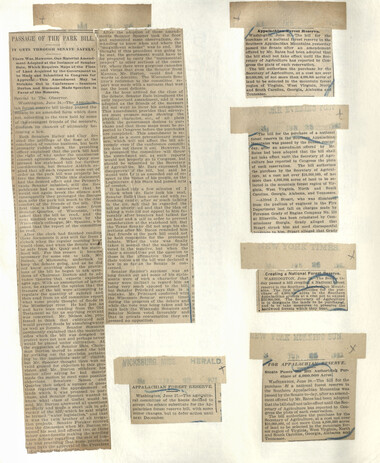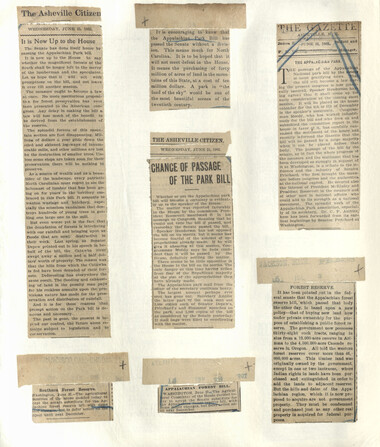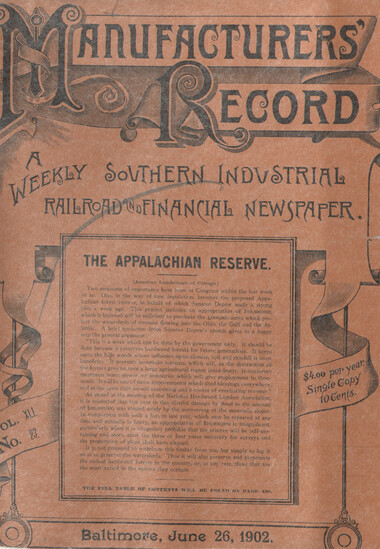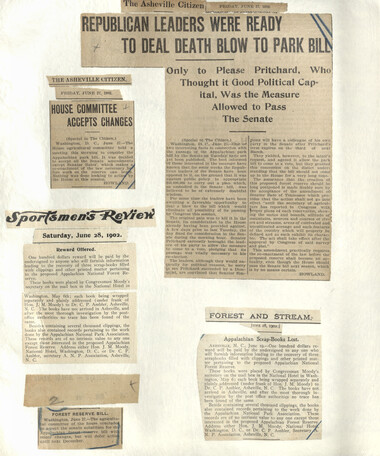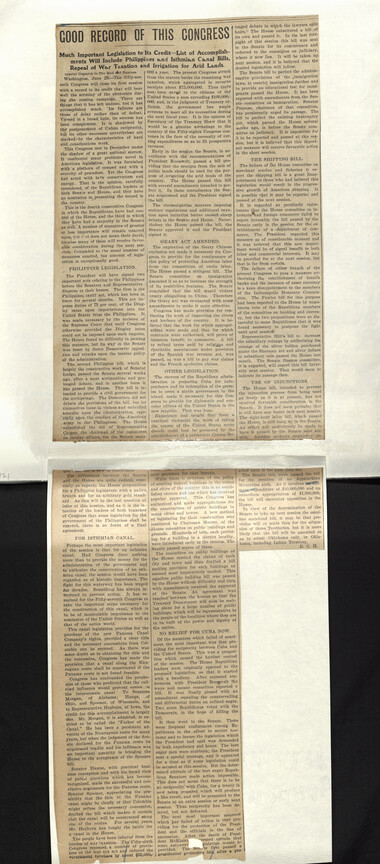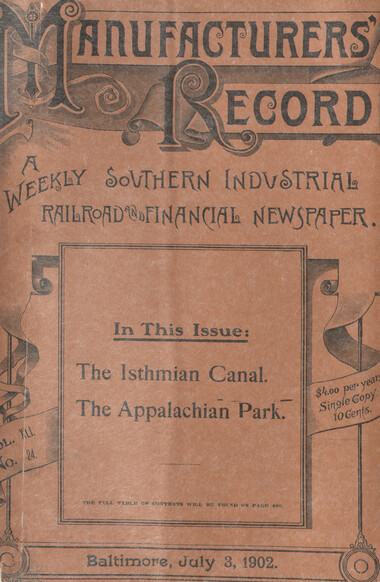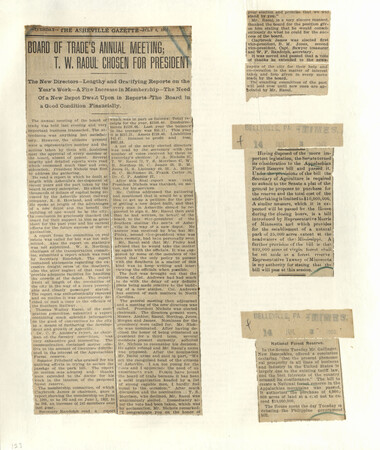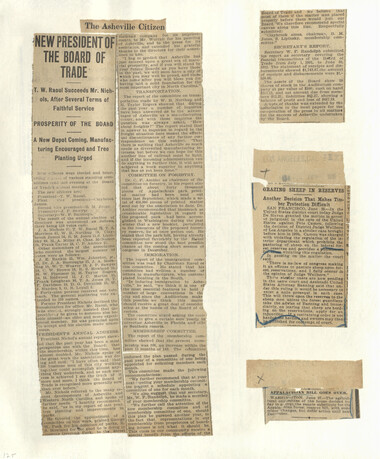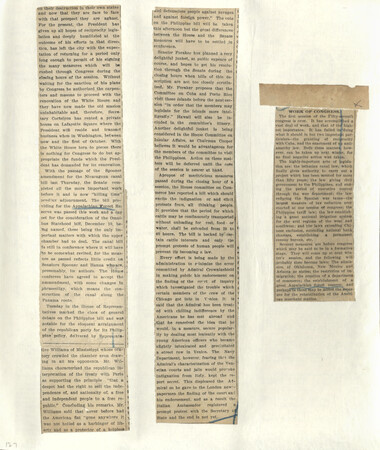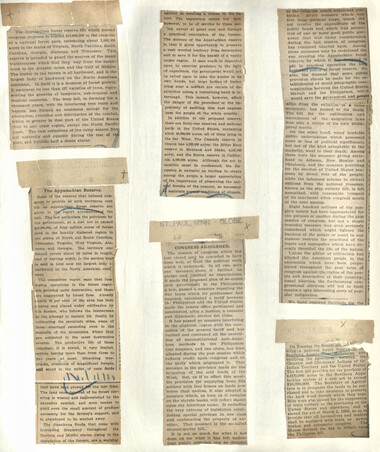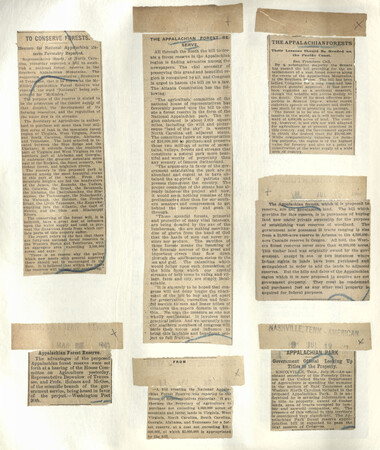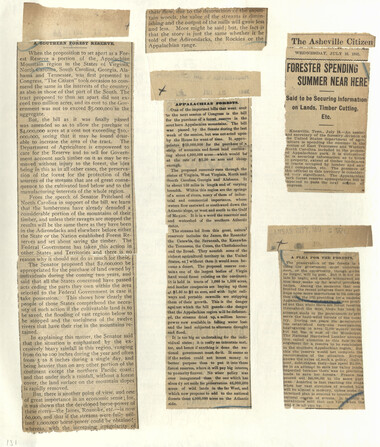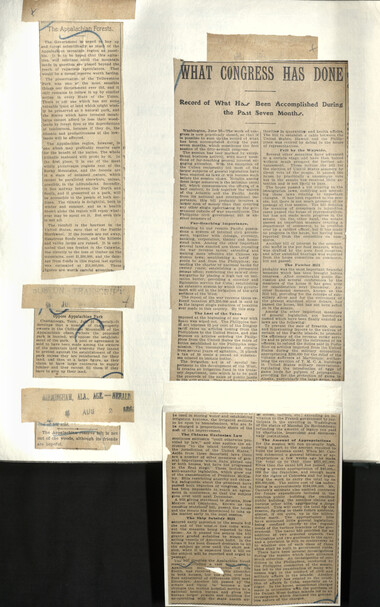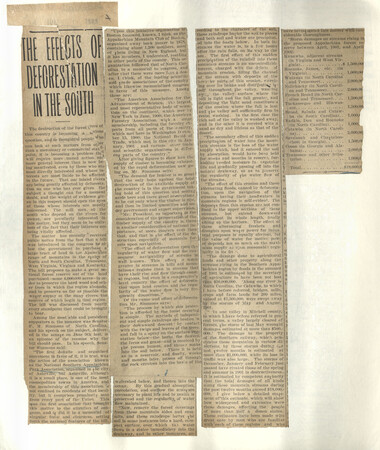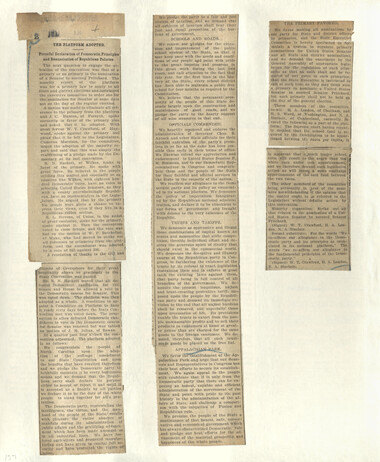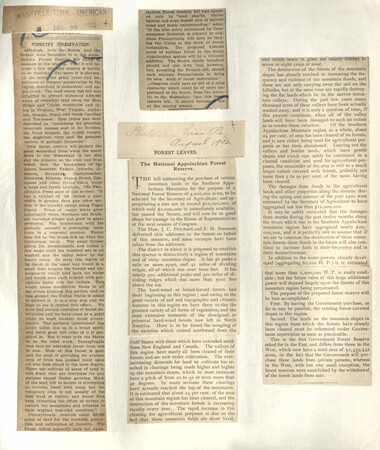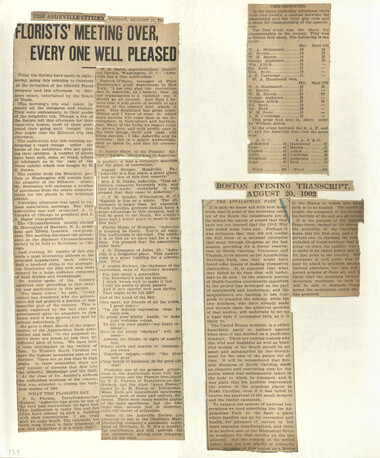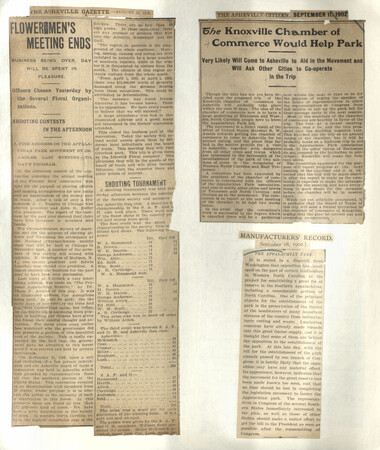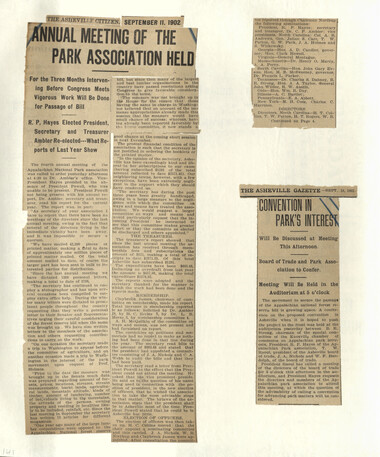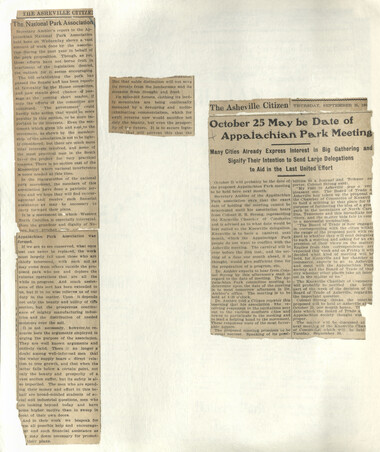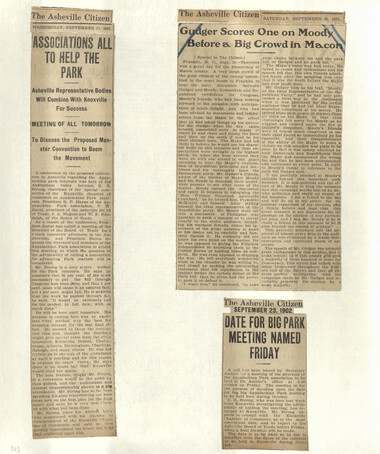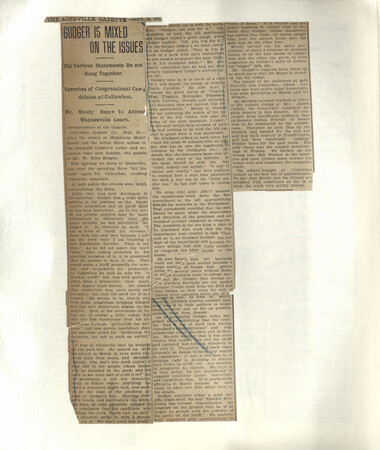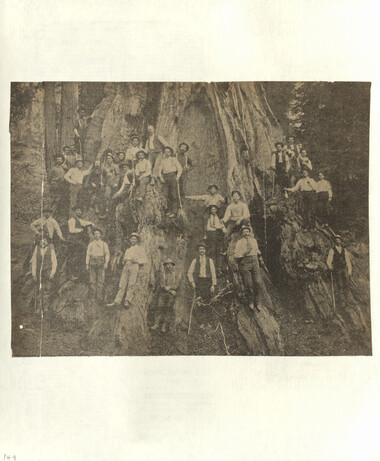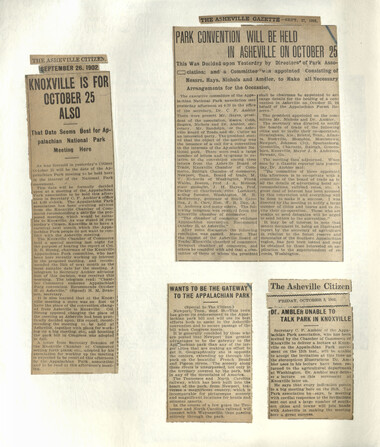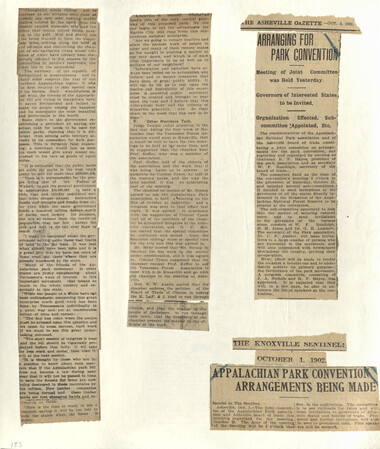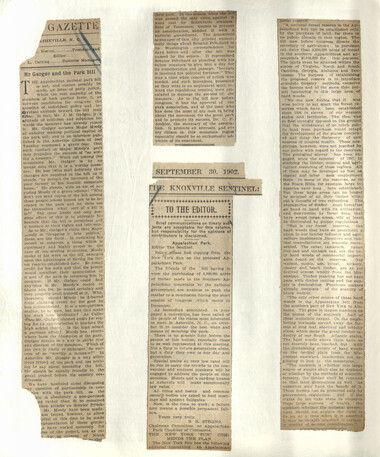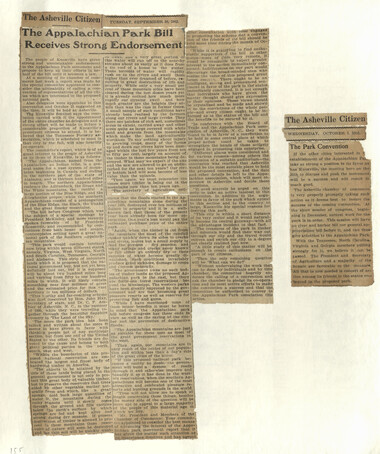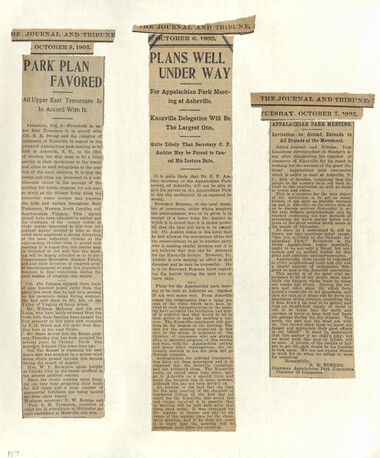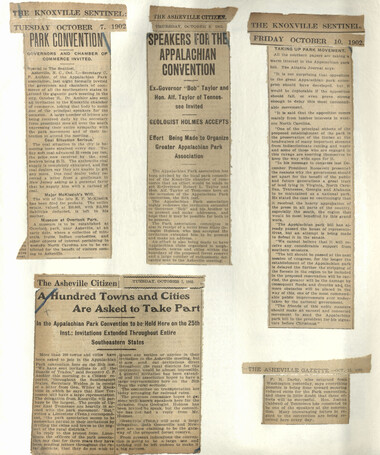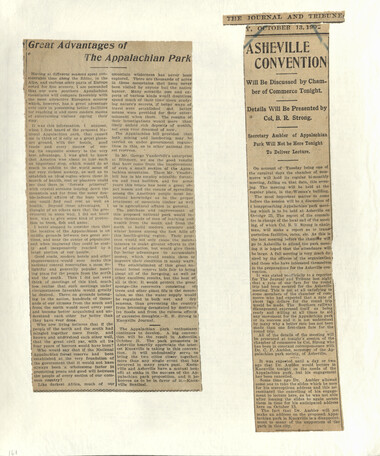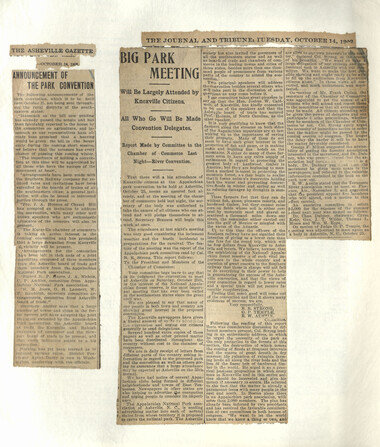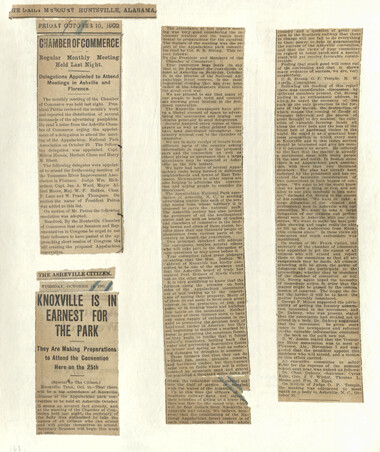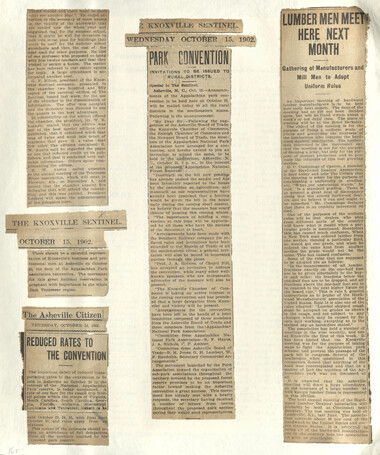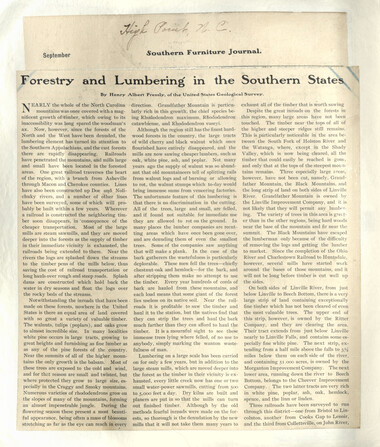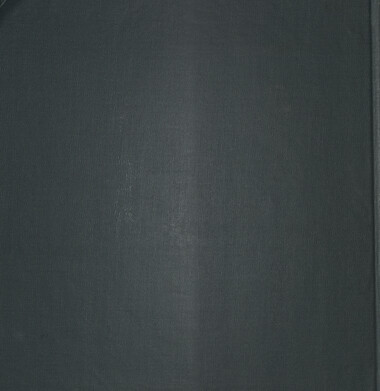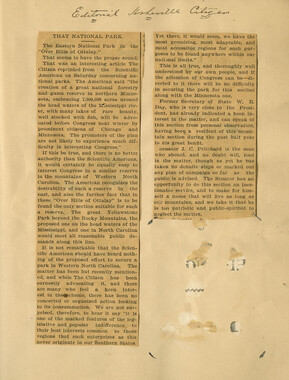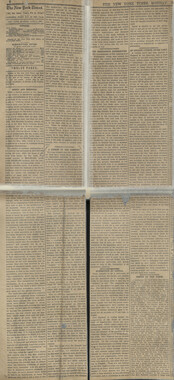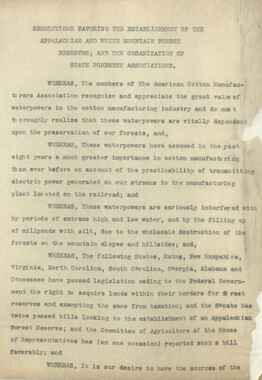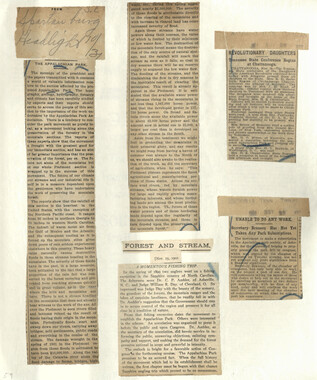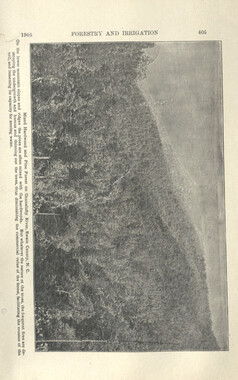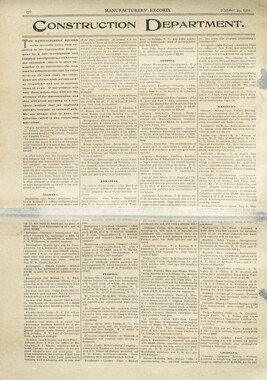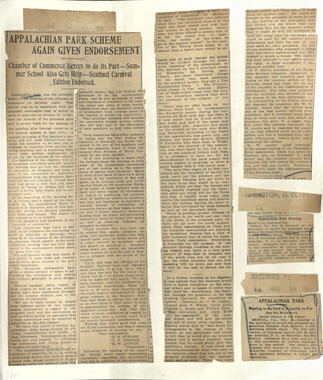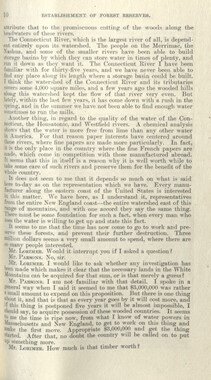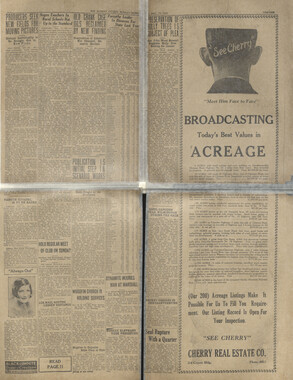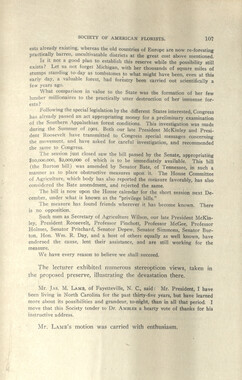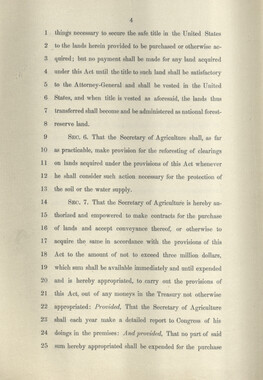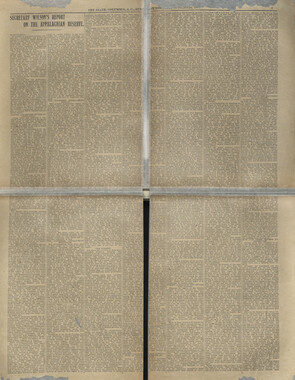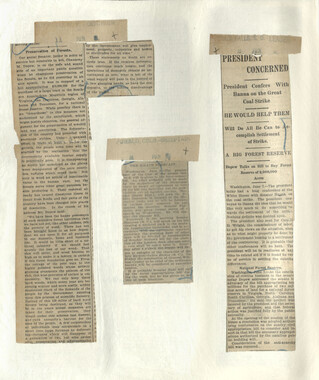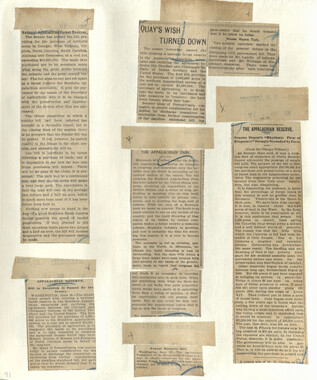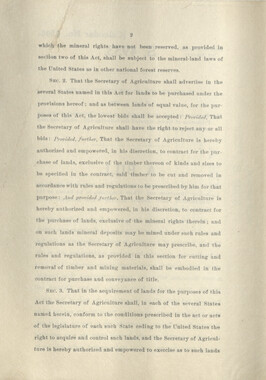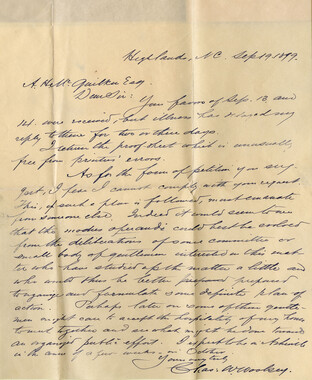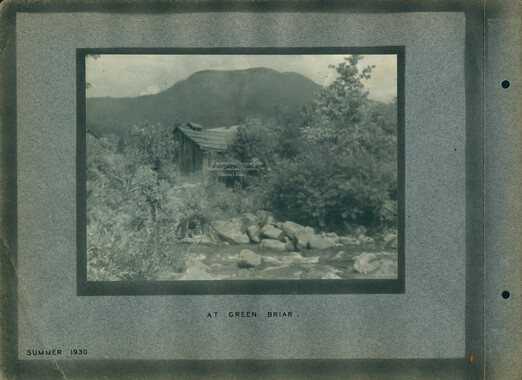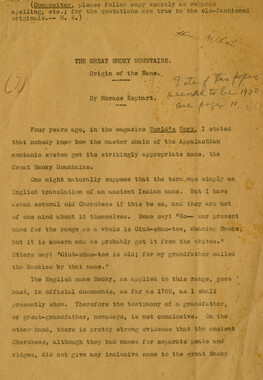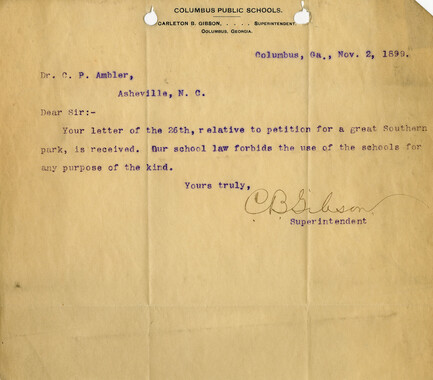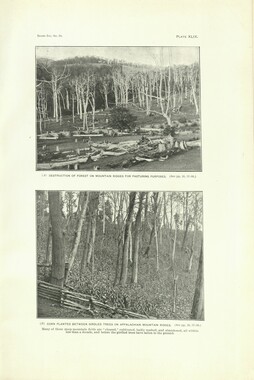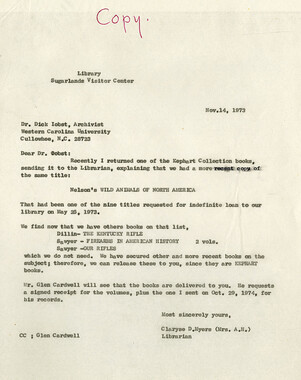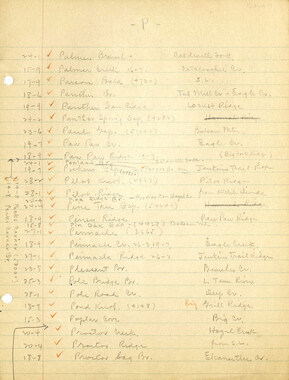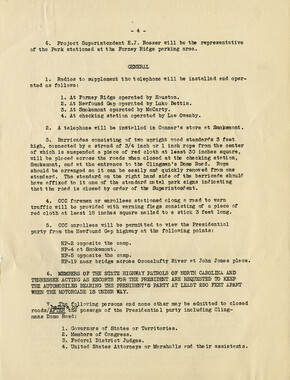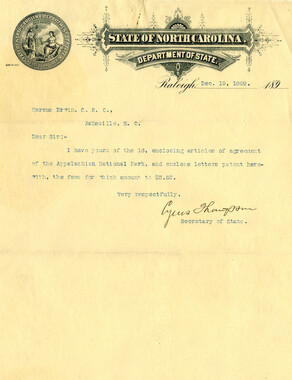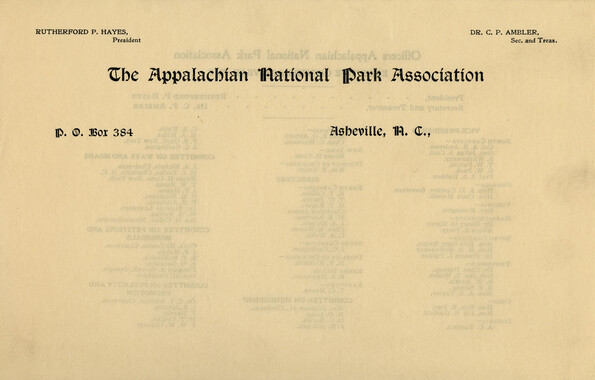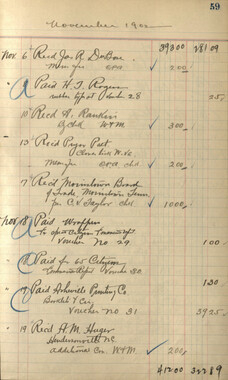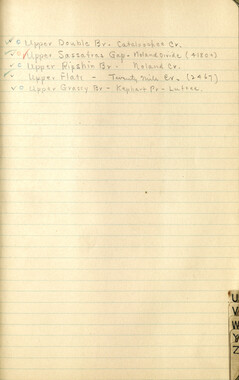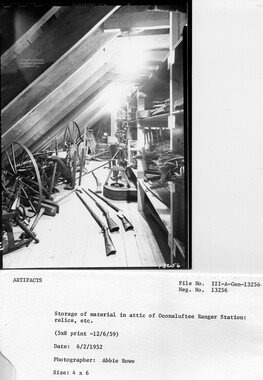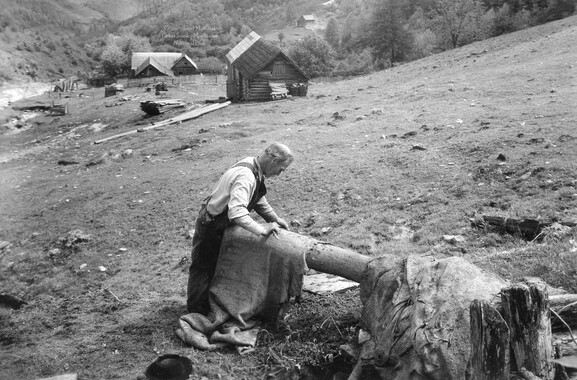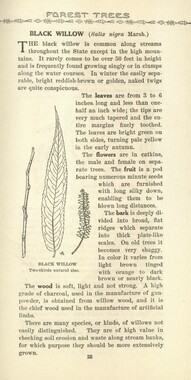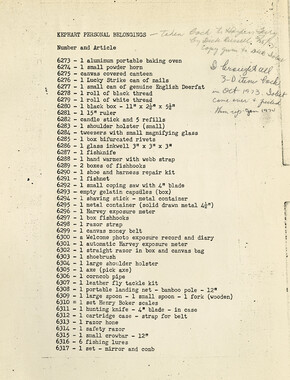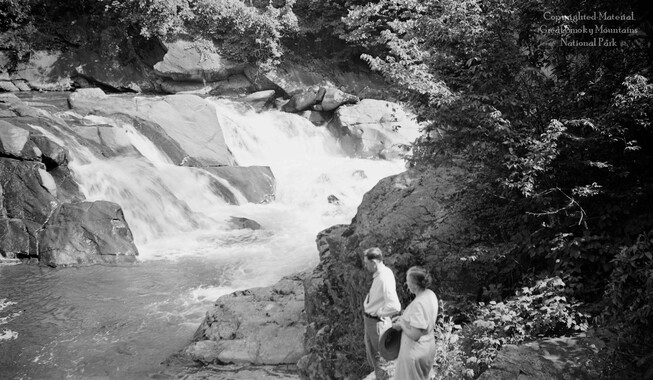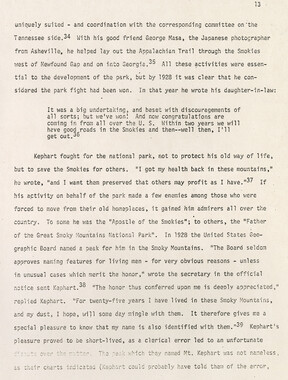Western Carolina University (20)
View all
- Canton Champion Fibre Company (2308)
- Cherokee Traditions (291)
- Civil War in Southern Appalachia (165)
- Craft Revival (1942)
- Great Smoky Mountains - A Park for America (2857)
- Highlights from Western Carolina University (430)
- Horace Kephart (941)
- Journeys Through Jackson (159)
- LGBTQIA+ Archive of Jackson County (85)
- Oral Histories of Western North Carolina (314)
- Picturing Appalachia (6772)
- Stories of Mountain Folk (413)
- Travel Western North Carolina (160)
- Western Carolina University Fine Art Museum Vitreograph Collection (129)
- Western Carolina University Herbarium (92)
- Western Carolina University: Making Memories (708)
- Western Carolina University Publications (2353)
- Western Carolina University Restricted Electronic Theses and Dissertations (146)
- Western North Carolina Regional Maps (71)
- World War II in Southern Appalachia (131)
University of North Carolina Asheville (6)
View all
- Allanstand Cottage Industries (62)
- Appalachian National Park Association (53)
- Bennett, Kelly, 1890-1974 (1388)
- Berry, Walter (76)
- Brasstown Carvers (40)
- Carver, George Washington, 1864?-1943 (26)
- Cathey, Joseph, 1803-1874 (1)
- Champion Fibre Company (233)
- Champion Paper and Fibre Company (297)
- Cherokee Indian Fair Association (16)
- Cherokee Language Program (22)
- Crowe, Amanda (40)
- Edmonston, Thomas Benton, 1842-1907 (7)
- Ensley, A. L. (Abraham Lincoln), 1865-1948 (275)
- Fromer, Irving Rhodes, 1913-1994 (70)
- George Butz (BFS 1907) (46)
- Goodrich, Frances Louisa (120)
- Grant, George Alexander, 1891-1964 (96)
- Heard, Marian Gladys (60)
- Kephart, Calvin, 1883-1969 (15)
- Kephart, Horace, 1862-1931 (313)
- Kephart, Laura, 1862-1954 (39)
- Laney, Gideon Thomas, 1889-1976 (439)
- Masa, George, 1881-1933 (61)
- McElhinney, William Julian, 1896-1953 (44)
- Niggli, Josephina, 1910-1983 (10)
- North Carolina Park Commission (105)
- Osborne, Kezia Stradley (9)
- Owens, Samuel Robert, 1918-1995 (11)
- Penland Weavers and Potters (36)
- Roberts, Vivienne (15)
- Roth, Albert, 1890-1974 (142)
- Schenck, Carl Alwin, 1868-1955 (1)
- Sherrill's Photography Studio (2565)
- Southern Highland Handicraft Guild (127)
- Southern Highlanders, Inc. (71)
- Stalcup, Jesse Bryson (46)
- Stearns, I. K. (213)
- Thompson, James Edward, 1880-1976 (226)
- United States. Indian Arts and Crafts Board (130)
- USFS (683)
- Vance, Zebulon Baird, 1830-1894 (1)
- Weaver, Zebulon, 1872-1948 (58)
- Western Carolina College (230)
- Western Carolina Teachers College (282)
- Western Carolina University (1840)
- Western Carolina University. Mountain Heritage Center (18)
- Whitman, Walt, 1819-1892 (10)
- Wilburn, Hiram Coleman, 1880-1967 (73)
- Williams, Isadora (3)
- Cain, Doreyl Ammons (0)
- Crittenden, Lorraine (0)
- Rhodes, Judy (0)
- Smith, Edward Clark (0)
- Appalachian Region, Southern (2569)
- Asheville (N.C.) (1923)
- Avery County (N.C.) (26)
- Blount County (Tenn.) (169)
- Buncombe County (N.C.) (1672)
- Cherokee County (N.C.) (283)
- Clay County (N.C.) (555)
- Graham County (N.C.) (233)
- Great Smoky Mountains National Park (N.C. and Tenn.) (519)
- Haywood County (N.C.) (3567)
- Henderson County (N.C.) (70)
- Jackson County (N.C.) (4745)
- Knox County (Tenn.) (31)
- Knoxville (Tenn.) (12)
- Lake Santeetlah (N.C.) (10)
- Macon County (N.C.) (420)
- Madison County (N.C.) (215)
- McDowell County (N.C.) (39)
- Mitchell County (N.C.) (132)
- Polk County (N.C.) (35)
- Qualla Boundary (981)
- Rutherford County (N.C.) (76)
- Swain County (N.C.) (2117)
- Transylvania County (N.C.) (270)
- Watauga County (N.C.) (12)
- Waynesville (N.C.) (84)
- Yancey County (N.C.) (72)
- Aerial Photographs (3)
- Aerial Views (60)
- Albums (books) (4)
- Articles (1)
- Artifacts (object Genre) (228)
- Bibliographies (1)
- Biography (general Genre) (2)
- Cards (information Artifacts) (38)
- Clippings (information Artifacts) (191)
- Copybooks (instructional Materials) (3)
- Crafts (art Genres) (622)
- Depictions (visual Works) (21)
- Design Drawings (1)
- Drawings (visual Works) (185)
- Envelopes (73)
- Exhibitions (events) (1)
- Facsimiles (reproductions) (1)
- Fiction (general Genre) (4)
- Financial Records (12)
- Fliers (printed Matter) (67)
- Glass Plate Negatives (381)
- Guidebooks (2)
- Internegatives (10)
- Interviews (815)
- Land Surveys (102)
- Letters (correspondence) (1013)
- Manuscripts (documents) (618)
- Maps (documents) (177)
- Memorandums (25)
- Minutes (administrative Records) (59)
- Negatives (photographs) (5926)
- Newsletters (1290)
- Newspapers (2)
- Notebooks (8)
- Occupation Currency (1)
- Paintings (visual Works) (1)
- Pen And Ink Drawings (1)
- Periodicals (193)
- Personal Narratives (10)
- Photographs (12976)
- Plans (maps) (1)
- Poetry (5)
- Portraits (4535)
- Postcards (329)
- Programs (documents) (151)
- Publications (documents) (2305)
- Questionnaires (65)
- Sayings (literary Genre) (1)
- Scrapbooks (282)
- Sheet Music (2)
- Slides (photographs) (402)
- Songs (musical Compositions) (2)
- Sound Recordings (796)
- Specimens (92)
- Speeches (documents) (15)
- Tintypes (photographs) (8)
- Transcripts (322)
- Video Recordings (physical Artifacts) (23)
- Vitreographs (129)
- Text Messages (0)
- A.L. Ensley Collection (275)
- Appalachian Industrial School Records (7)
- Appalachian National Park Association Records (336)
- Axley-Meroney Collection (2)
- Bayard Wootten Photograph Collection (20)
- Bethel Rural Community Organization Collection (7)
- Blumer Collection (5)
- C.W. Slagle Collection (20)
- Canton Area Historical Museum (2110)
- Carlos C. Campbell Collection (373)
- Cataloochee History Project (64)
- Cherokee Studies Collection (4)
- Daisy Dame Photograph Album (5)
- Daniel Boone VI Collection (1)
- Doris Ulmann Photograph Collection (112)
- Elizabeth H. Lasley Collection (1)
- Elizabeth Woolworth Szold Fleharty Collection (4)
- Frank Fry Collection (95)
- George Masa Collection (173)
- Gideon Laney Collection (452)
- Hazel Scarborough Collection (2)
- Hiram C. Wilburn Papers (28)
- Historic Photographs Collection (236)
- Horace Kephart Collection (861)
- Humbard Collection (33)
- Hunter and Weaver Families Collection (1)
- I. D. Blumenthal Collection (4)
- Isadora Williams Collection (4)
- Jesse Bryson Stalcup Collection (47)
- Jim Thompson Collection (224)
- John B. Battle Collection (7)
- John C. Campbell Folk School Records (80)
- John Parris Collection (6)
- Judaculla Rock project (2)
- Kelly Bennett Collection (1407)
- Love Family Papers (11)
- Major Wiley Parris Civil War Letters (3)
- Map Collection (12)
- McFee-Misemer Civil War Letters (34)
- Mountain Heritage Center Collection (4)
- Norburn - Robertson - Thomson Families Collection (44)
- Pauline Hood Collection (7)
- Pre-Guild Collection (2)
- Qualla Arts and Crafts Mutual Collection (12)
- R.A. Romanes Collection (681)
- Rosser H. Taylor Collection (1)
- Samuel Robert Owens Collection (94)
- Sara Madison Collection (144)
- Sherrill Studio Photo Collection (2558)
- Smoky Mountains Hiking Club Collection (616)
- Stories of Mountain Folk - Radio Programs (374)
- The Reporter, Western Carolina University (510)
- Venoy and Elizabeth Reed Collection (16)
- WCU Gender and Sexuality Oral History Project (32)
- WCU Mountain Heritage Center Oral Histories (25)
- WCU Oral History Collection - Mountain People, Mountain Lives (71)
- WCU Students Newspapers Collection (1784)
- Western North Carolina Tomorrow Black Oral History Project (69)
- William Williams Stringfield Collection (2)
- Zebulon Weaver Collection (109)
- African Americans (390)
- Appalachian Trail (35)
- Artisans (521)
- Cherokee art (84)
- Cherokee artists -- North Carolina (10)
- Cherokee language (21)
- Cherokee pottery (101)
- Cherokee women (208)
- Church buildings (170)
- Civilian Conservation Corps (U.S.) (110)
- College student newspapers and periodicals (1876)
- Dams (107)
- Dance (1023)
- Education (222)
- Floods (61)
- Folk music (1015)
- Forced removal, 1813-1903 (2)
- Forest conservation (220)
- Forests and forestry (1184)
- Gender nonconformity (4)
- Great Smoky Mountains National Park (N.C. and Tenn.) (181)
- Hunting (45)
- Landscape photography (25)
- Logging (118)
- Maps (83)
- Mines and mineral resources (8)
- North Carolina -- Maps (18)
- Paper industry (38)
- Postcards (255)
- Pottery (135)
- Railroad trains (71)
- Rural electrification -- North Carolina, Western (3)
- School integration -- Southern States (2)
- Segregation -- North Carolina, Western (5)
- Slavery (5)
- Sports (452)
- Storytelling (243)
- Waterfalls -- Great Smoky Mountains (N.C. and Tenn.) (66)
- Weaving -- Appalachian Region, Southern (280)
- Wood-carving -- Appalachian Region, Southern (328)
- World War, 1939-1945 (173)
Appalachian National Park Association Newspaper Clippings, 1899-1902
Item
Item’s are ‘child’ level descriptions to ‘parent’ objects, (e.g. one page of a whole book).
-
-
cAx y / > + ^ A Drain on the Forests. A The movement of Christmas trees. which for this season closed Monday —Cl-ni.s.jiias Day—annually numbers from 3 500,000 to 5,000,000 trees, collected chiefly in Maine and Vermont. These trees represent a value to the grower of from 1 cent to $2.50 each on the stump; i 4 cents to $575 each to the speculator and shipper; from 10 cents to $20 each to the wholesale dealers, and from 15 cents to $25 each to the retail grocer and small distributors. The trees are shipped down from the nearest railway stations in open cars, the cost of freight varying as to distance from $20 to $50 per carload. The average output in Maine is from 1.250,000 to 2,000,000 trees every year. This season, according to figures now at hand, the production exceeded 1.000 trees. Vermont produces upward of 1,000,000, and the balance for this market comes from the wooded sections of New Hampshire. Massachusetts, Cwm necticut, New York and Pennsylvania. New Jersey sends but a small portion of the supply. It is impossible that the forests of the country can stand such a strain on their resources for a very much longer time. 9- ^-a SPRUCE. "^~ That somewhat despised variety of tree from which is produced the spruce lumber of commerce is now having its innings of appreciation in the Maritime Provinces and abroad. It is a long time in the history of lumbering since spruce enjoyed the attention which is now a prominent feature in the timber markets of the world. A demand for nearly all grades of spruce I has sprung up from various centres, and the production this year will exceed many previous season's cut. Hemlock, another member of the coniferous family, which has probably been more neglected and suffered from a bad reputation to a greater degree than any other kind of lumber, is sharing the honors with its nearly related cousin, spruce, and between the two varieties, the demand promises to be great enough to warrant lumber operators in looking forward to the present winter's work as likely to be a profitable one. With improved methods of wood working have come increased appreciation of some of the natural beauties and qualities of these two woods when handled properly, and we presume the decreasing supply of other available lumber helps the demand for (he less popular varieties. 'r' vflNNEAPOLIS JOURN M.D.'SWILLPROTEST Against Cutting the Leech Lake Pine Near Walker. A HEALTH RESORT IS MENACED And the Doctors Want the Grove Preserved for Tubercular Patients. Those members of the medietl profession night most into tout act. Willi cases of pulmonary diseases, were emphatic in their expressions of regret that the bill providing for a state park it Lee. was not passed by the last legislature, but the explanation offered, that the bill had been sent-to the wrong committee by mistake and so overlooked, was accepted. Now there appears to be a sentiment that the oversight was possibly prenuHlitav that unsuspected oppositlor^ffas quietly at work to prevent the passage of such a bill. This view of the matter results from a recent discovery that the whole 1 timber, white and Norway pine, which makes the town of I ,• of the most picturesque spots In the United Sti to be cleared off this winter |>y a lumber concern which owns the ttmller, and the value of the locality"a-s a hcallh resort for invalids, particularly for tubercular ca»es, destroyed. Since the excursion of Minneapolis and St. Paul doctors to the Leecl lake region a year ago, it has been admitted by all physicians that the country about Walker was especially adapted to us« as a health resort, and the proposed legislation for a state park received the missed support of the profession. The doctors now assert that if the Walker shore is denuded of its timber, nothing will remain but a waste of arid, sandy hills covered with stumps, ami that the naturally picturesque beauties of the place will be forever gone. Also the cuttnig of the pine will remove the shelter I IIIIR«V r-^i...— INDORSED THE PARK Strong Resolution). Adopted by Citizens of Walker in Mass Meeting. Walker, Minn., March 5.—At a meeting of the citizens of Walker to discuss h na I..., ...position. resolutSVer adopted indorsing the national park scheme and condemning the Nelonn «nt for disposition of pine. Ihichw^sd to enrich a. few lumbermen and rob th Indians. Opportunity was taken to ih*L -». Paul and Minnoapo us pSbflc ,nS°.fet th?v,boards of fade throughout the state, the associations of physician- and surgeons, the active and poV tho magnificent congressional dele- satlon lbi' lie nark realm, 1. > October, the uaiversu/^f™ £*j cut Bow afforded and rob the locality not aion«J of its natural attractiveness but as well of! its principal health-giving element, the pine growths. The members of the profession in Min- ■id St. Paul are now taking a keen interest in having this tract of timber preserved and representations are to be made to T. B. Walker, who Is the owner of the timber, that will possibly induce him to forego his Intention of cutting the pine. As the matter stands now, however, all arrangements have been made for work in the woods immediately surrounding Walker, and prompt action will be necessary to prevent their destruction. ■ The doctors interested are J. W Bell, R. O. Heard, J. T. Moore, J. W. McDonald, S\ A. Hunsmoor, Leo M. Crafjta, George Eitel ami H. M. Bracken of Minneapolis, and A. W. Dunning and ('. L. Green of St. Paul. Thete gentlemen have had a meeting for discussion of the situation and have I that the matter should be presented , to Mr. Walker in its public aspect, with a } to securi ig such delay in his lumbering operations as may be necessary to devise means for'the purchase of the hind. The Walker nhore is the only one accessible as a resoi* of the kind contemplated by the medical ;rofession, and the town of. Walk* tural headquarters for in valids who are sent into the pines to r"- The medical men regard the try as a veritable panacea for nervous ailment: nusijr beneficial in all tubercular troubles. It is hoped eventually to establish either at er or in the vicinity, a sanitorium capable of accommodating several hundred patients, and even as the accommodations are at present, large numbers of patients have been sent there this year from Minneapolis and St. Paul. The people of Walker are deeply interested in the situation and a petition is now culation which will be signed by the majority of residents asking Mr. Walker to defer cutting the timber until means can be devised for buying his rights. A plan is on foot among the inhabitants to raise the money by popular subscription. The county commissioners have also petitioned Mr. Walker to postpone cutting for this season. The doctors will have another meeting in a few days to discuss ways and means. It is understood that the timber around Walker is so scattering and of such small size by comparison with the growth usually cut, that it will cost all the pine is worth to get it out. In any event, Mr. Walker will be asked to put a price upon his hold- : ings in the vicinity of Walker and a strong ' effort will be made to preserve the pine I growths of that shore as they now stand.
Object
Object’s are ‘parent’ level descriptions to ‘children’ items, (e.g. a book with pages).
-
This is one of two notebooks assembled by the Appalachian National Park Association that includes documents and news clipping about the organization. The Appalachian National Park Association was formed in 1899 for the purpose of promoting the idea of a national park in the eastern U.S. Although housed in Asheville, North Carolina, the organization was a multi-state effort, attracting representatives from seven southern states. One of the highlights of the group’s activities was a convention held in 1902 to which 1,500 people attended. The association lobbied Congress for the creation of a park, but with limited success. The association disbanded in 1905.
-
